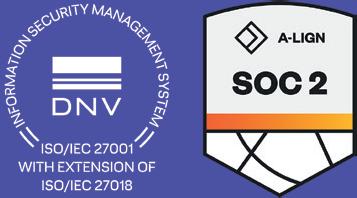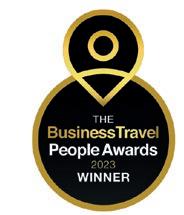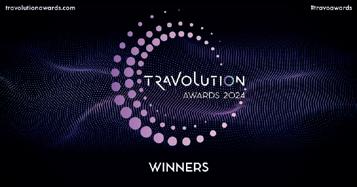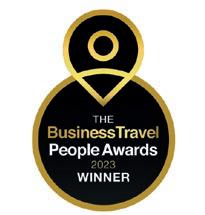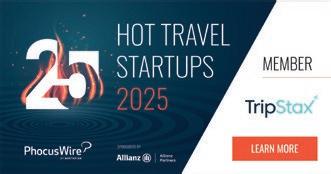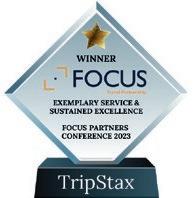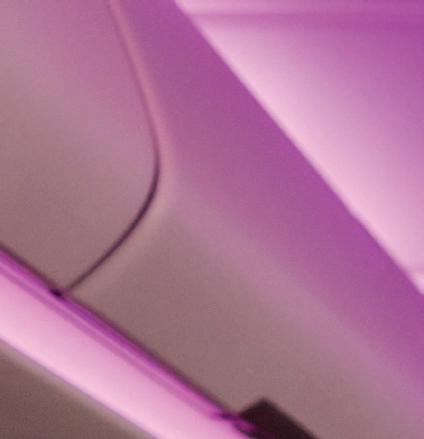




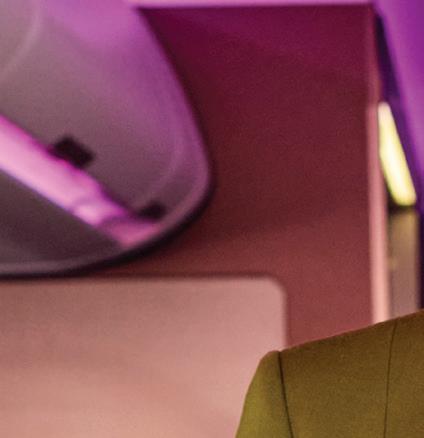

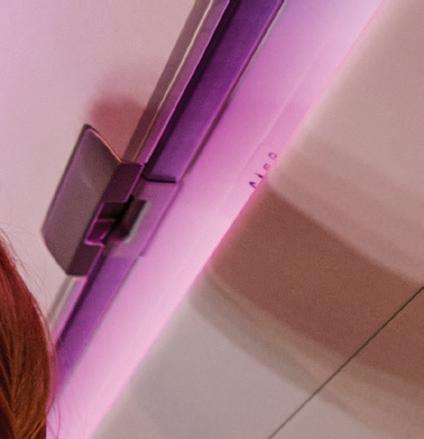

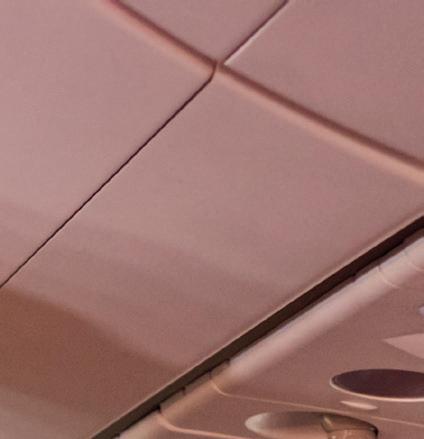

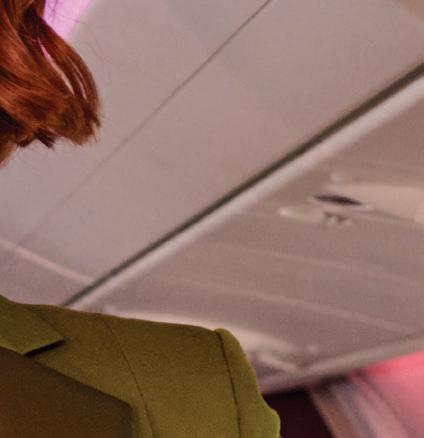

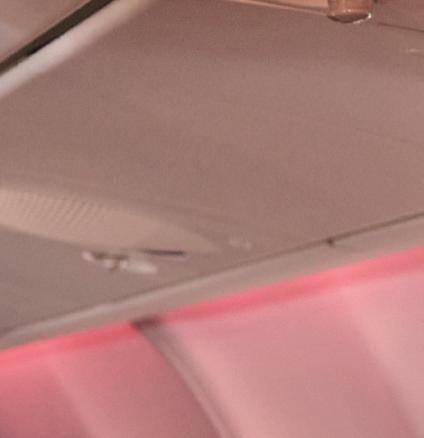



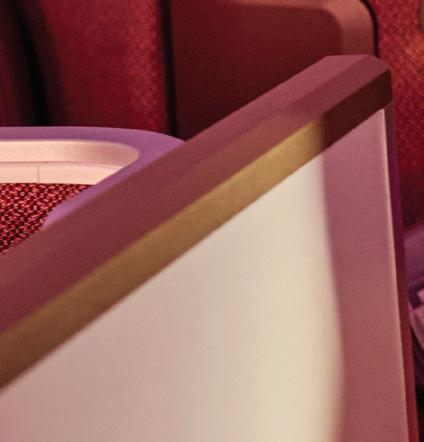































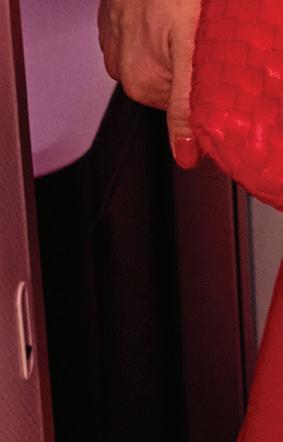





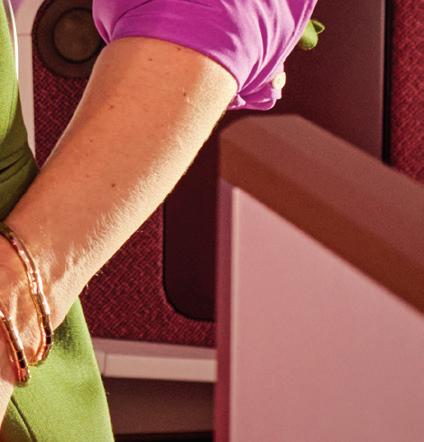








Our pick of the ones to watch

+ The power of SMEs
Managing F&B spend
Driving policy compliance
Tech Finder






























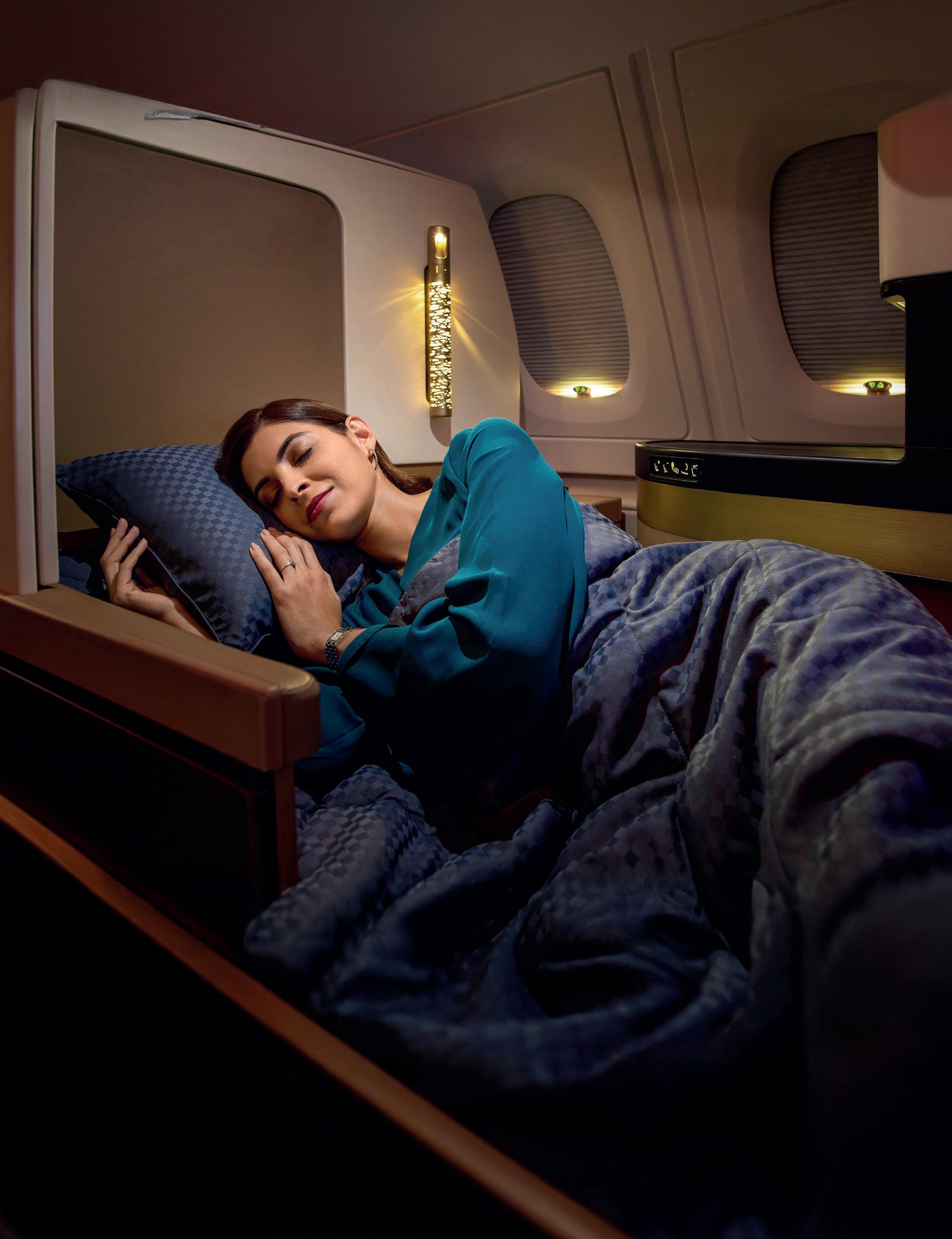





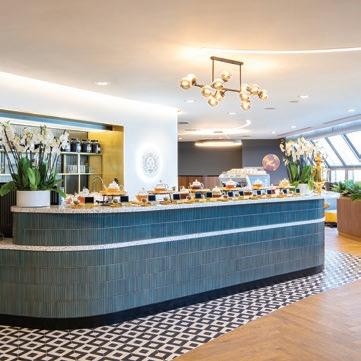



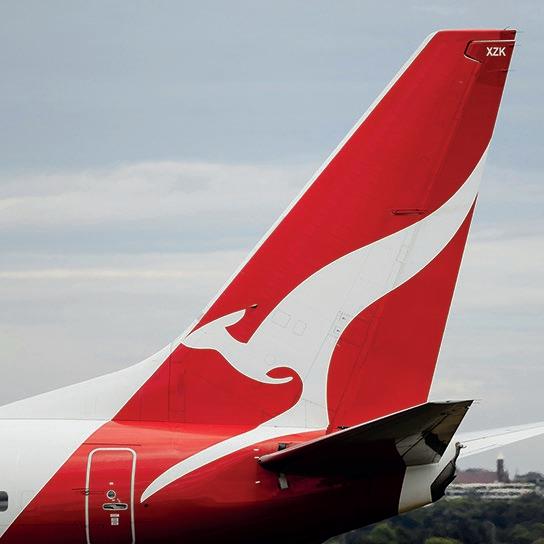



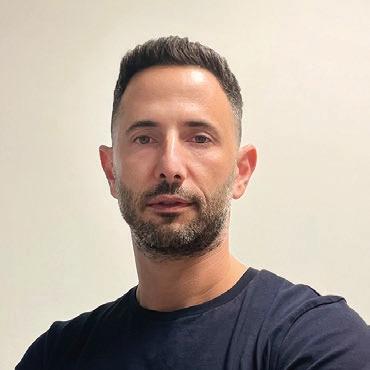
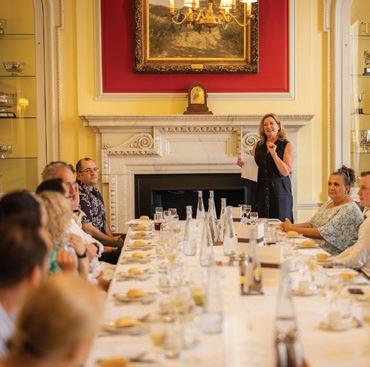




People Awards: We check in with the judges as the big night approaches
29 Focus on SMEs: How and why TMCs and other suppliers are wooing small to medium sized businesses
34 Driving compliance: Expert advice on how to bring your travellers in line
38 Managing F&B spend: Top tips on how to control a significant but often overlooked travel expense
48 Ground Transport: Key takeaways from our latest Business Travel Lunch Forum
6 Opening Shots: The most exciting openings in the world of travel – in pictures
8 Everyone's Talking About: The rising cost of business travel 9 Speaking Out: Karen Hutchings on why experience still counts



Tech Finder: A directory of key players in business travel tech
On Business In: Perth


Reality Check: We review a US
and hotels in London, Hamburg, Newport and Cork
Final
s someone who began a career before the arrival of the internet or email (yes, I know, I'm showing my age) the pace of technological change can sometimes feel unnerving, and it's only going to get quicker.
I often hear at industry conferences that technology in business travel lags behind other sectors, but based on the quantity and quality of entries for this year's Tech Hotlist, I'm reassured that it's catching up, fast.
From the fresh-faced start-ups to the well-established players, there are so many great innovations out there, all designed to make processes easier, faster, cheaper, more accurate, more meaningful, richer, better.
In fact, this year we struggled to limit the number to our usual 10 so there are 16 in our hotlist (see page 12). I don't envy anyone who's job is to decide which tech to invest in, but hopefully our list and our new Tech Finder (page 42) will help.
Of course, while technology has a vital role to play, what really drives our industry is its people and on September 30 we look forward to welcoming many of you to the Business Travel People Awards. For me, it's hands down the best night in our industry's busy social calendar. I love seeing the winners' faces as they come to the stage to collect their awards.
As you'll see on page 22, being part of the People Awards is not just enriching for the winners, it's a hugely rewarding experience for the judges too. As one judge says: "It’s inspiring to see such creativity and leadership in this field. It validates why I have worked in it for 37 years."
It's reassuring to know that our awards are having such a positive impact – and to know there are people who've been in this industry for even longer than I have.





Bev Fearis, Editor
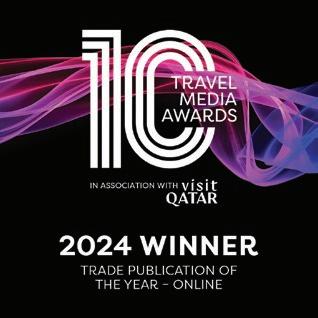
EDITORIAL
EDITOR
Bev Fearis
CONTRIBUTORS
Gill Upton, Nick Easen & Jo Reeder
EDITORIAL DIRECTOR
Steve Hartridge
ADVERTISING SALES
PUBLISHER / COMMERCIAL HEAD
Kirsty Hicks
DESIGN & PRODUCTION
DESIGNERS
Matt Bonner, Caitlan Francis, & Colette Denham
OPERATIONS DIRECTOR
Clare Hunter
PRODUCTION ADMINISTRATOR
Steve Hunter
SUBSCRIPTIONS
Subscribe for free at thebusinesstravelmag.com/subscribe
MANAGING DIRECTOR
Matt Bonner
CEO Martin Steady

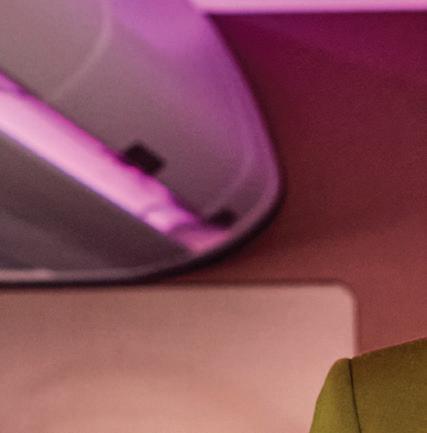
Reply all, stream and ‘can you share screen?’ – all straight from your seat. We’re the first UK airline to o er Starlink WiFi from 2026 – completely free for our Flying Club members. That’s gate-to-gate connection, without compromise.
Need to power through before takeo ? Our LAX Clubhouse o ers quiet spaces built around business, leading the way on balancing comfort and focus. Heathrow and JFK are next to be reimagined with all the extras that turn preflight time into prime productive time.
Our smartest app will be rolled out just in time for your Q4 wrap ups. Booking tools, a 24/7 AI concierge, and more –all in one place. Consider it your very own travel PA.



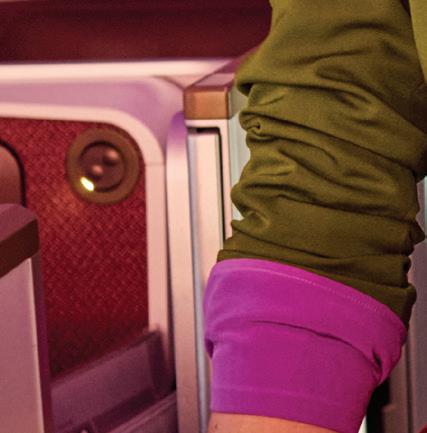

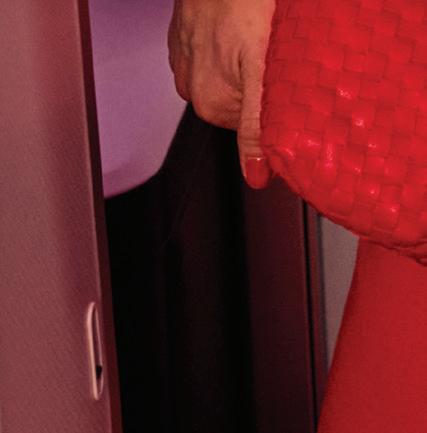
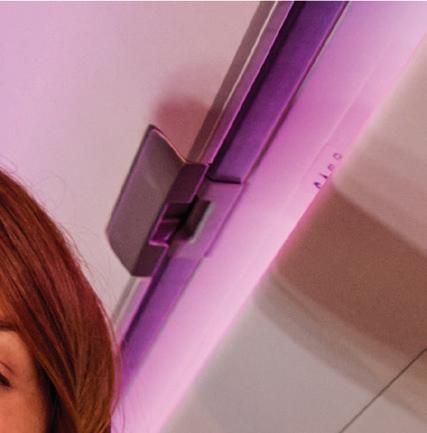
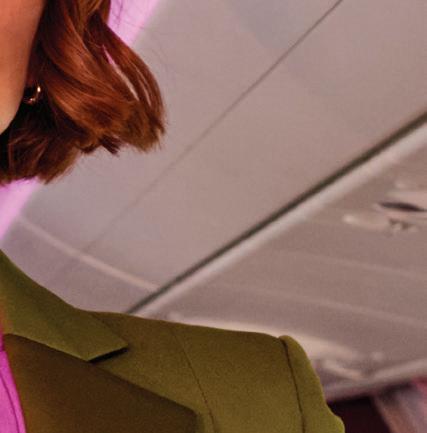









W Florence dining options include Tratto, an Italian concept inspired by the team at Michelin-starred Trattoria Contemporanea near Lake Como”
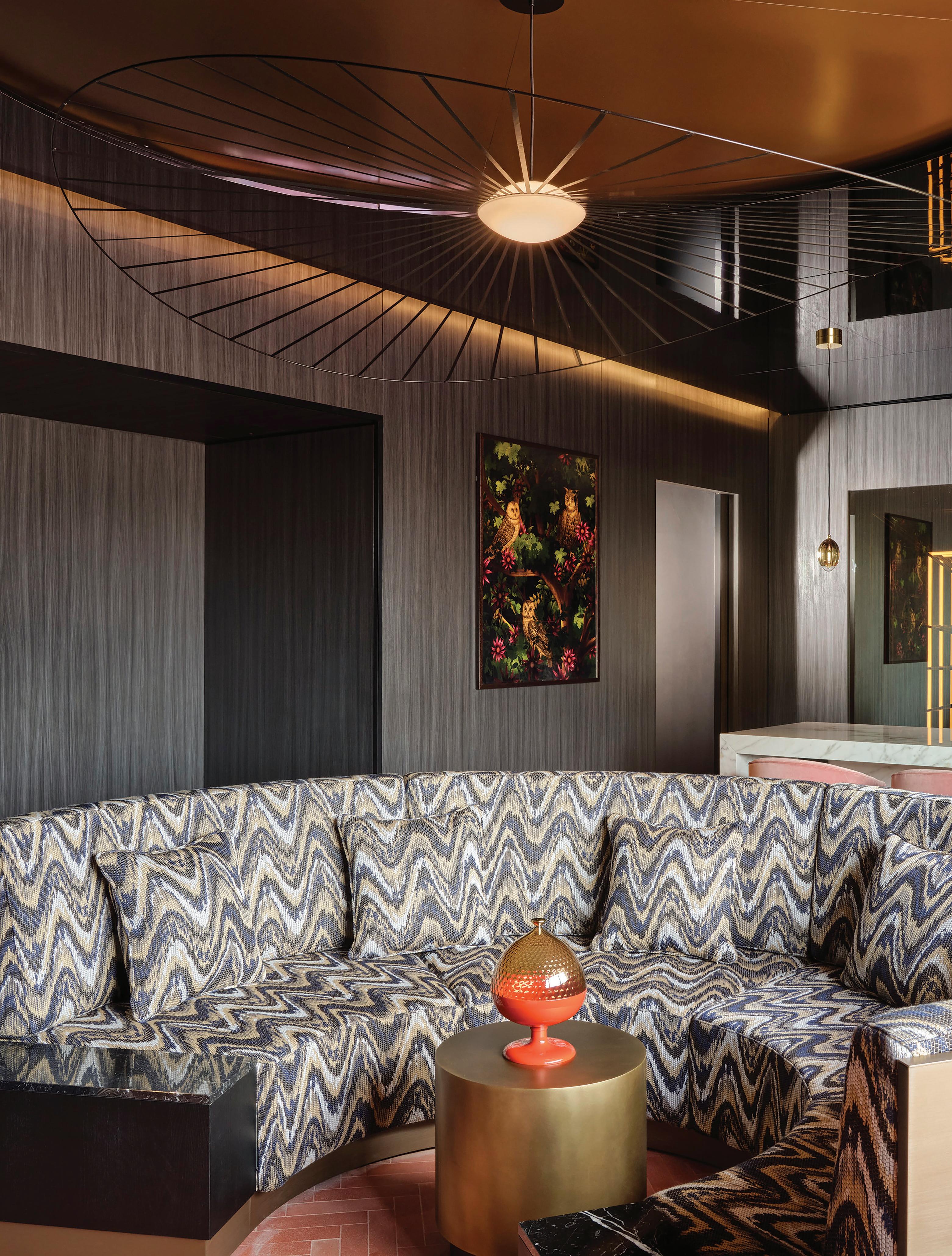
The stylish 119-room W Florence represents a fitting return for the former Grand Hotel Majestic. Highlights include 16 suites and a penthouse, flexible event spaces and a lush Zefiro Rooftop garden, with views over the Tuscan capital’s iconic architecture.

Flag carrier Saudia continues its drive to showcase Saudi Arabian hospitality with the opening of its new First and Business Class lounge at Heathrow T4. Also available to Alfuran Gold loyalty members, the lounge features Wi-Fi connected workspaces, buffet and à la carte dining, butler services and a prayer room.
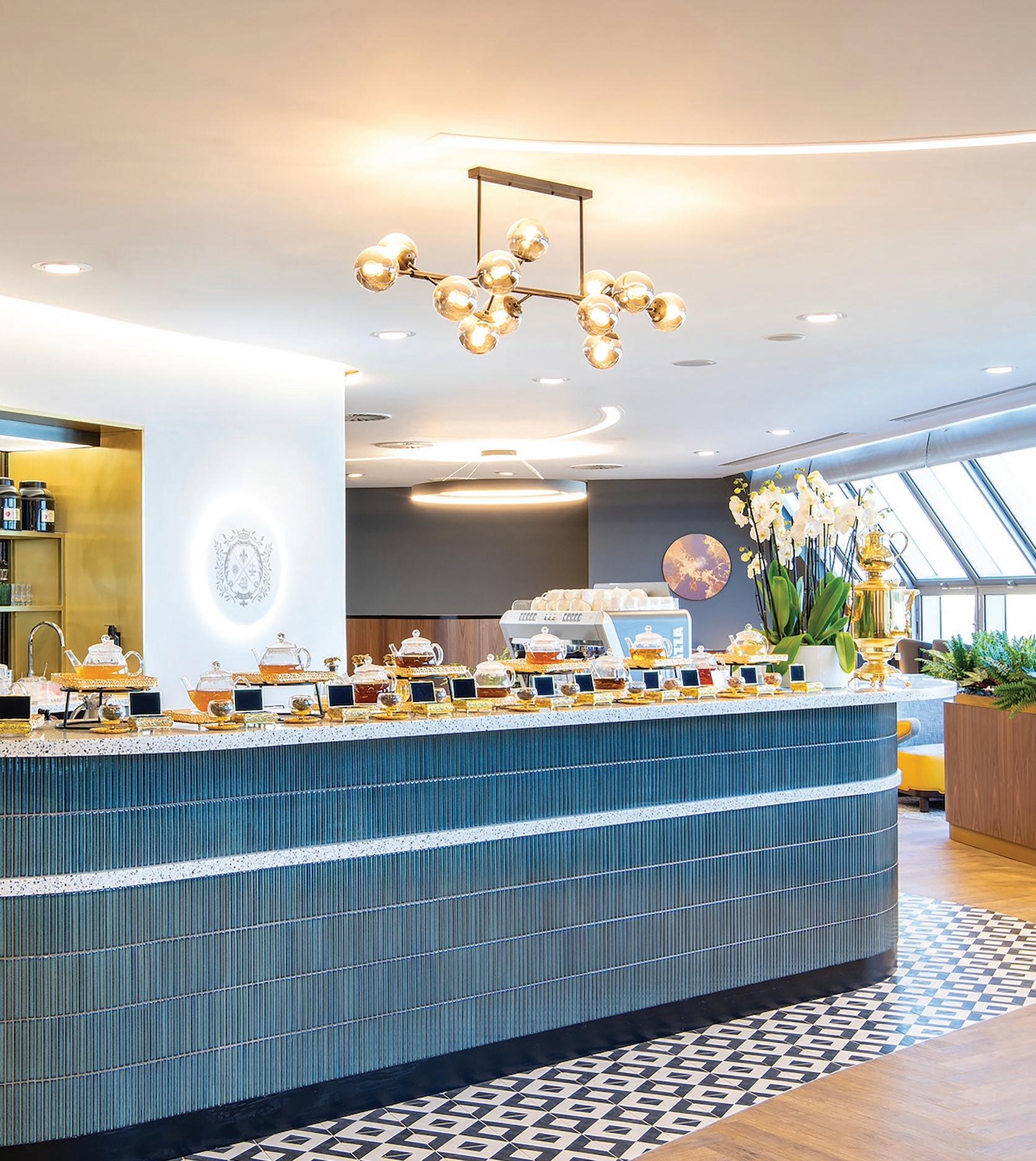

Hyatt has chosen the Estonian capital for its first foray into the Baltics, aiming its 169room Tallinn property at both leisure and business guests. Situated in the harbour district, the hotel is a short walk from shops, major attractions and the Kultuurikatel district, a major hub for tech and creative firms.

Formerly City ID, the newly named July Hotels brand has landed in London with the first of four planned openings (Dublin, Lisbon and Amsterdam are all in the pipeline). This 114-room aparthotel has a cool and playful Art Deco vibe, with co-working spaces restaurant and deli on site.
“ WITH RISING DEMAND AND FARES PUSHING COSTS UP, SECURING VALUE FROM TRAVEL PROGRAMMES WILL DEPEND ON STRATEGY, NEGOTIATION AND THE RIGHT PARTNERSHIPS ”
“Whether it’s capitalising on localised pricing trends, securing added value through smarter negotiations, or rethinking event formats for greater impact, this is a moment to be proactive and strategic"
“CORPORATIONS
“TRAVEL MANAGERS ARE UNDER INCREASING PRESSURE TO DELIVER SAVINGS AGAINST A BACKDROP OF RISING TARIFFS AND CHARGES. OPAQUE PRICING MAY LOOK EFFECTIVE IN THE SHORT TERM, BUT IT RISKS UNINTENDED CONSEQUENCES BY SUPPRESSING DEMAND AT THE VERY MOMENT THE ECONOMY NEEDS GROWTH AND CONFIDENCE”
Airlines impacted by new tariffs (like on aircraft parts, maintenance and fuel) are passing those costs on. That means your regional flights might suddenly carry long-haul price tags”
FCM’s The Alternative Take
ARE VERY SMART AROUND THE COST OF TRAVEL AND BECOMING SMARTER AS THEY GO ON, BUT THEY CLEARLY SEE THE BENEFITS OF TRAVELLING FOR CUSTOMER ENGAGEMENT,
BUILDING RELATIONSHIPS AND DRIVING THOSE STRATEGIC OBJECTIVES ”

“Key
European airlines have significantly increased carrier surcharges from their home markets, especially in business cabins, leading to fare increases”
In a fast-paced world it is easy for older employees to question their relevance. Instead, it's time to celebrate experience, says Karen Hutchings
Turning 60 in July felt like something I might let slip by quietly. For months, I told myself I’d keep it low key, partly because I didn’t want others to put a number on me and decide, consciously or not, what that meant about my relevance.
In business, we’ve all heard the whispers: if someone’s been around ‘too long’ they must be out of step or anchored to an outdated playbook. I’ve seen that happen. But I’ve spent my entire career striving to be the counterexample – staying curious, reinventing myself and running towards the next challenge, not away from it.
Eighteen months ago, I left a stable job to strike out on my own. To many, that might have felt like a risk. To me, it was a natural next step.
Working with innovative companies like HeadBox, Badge, Clarasight and SilverDoor has been energising, even if I’ve clearly been
the oldest person in every room I've entered!
This isn’t new. I recall when I appointed a senior colleague as Innovation Leader at EY. The move raised eyebrows as he wasn’t the most tech-savvy candidate. But he had a rare ability to inspire his team and unlock their potential. The result? One of the most forward-thinking travel programmes in the industry. Sometimes, innovation isn’t about knowing every new tool, it’s about empowering the right people to use them.
Forward, with purpose
Yes, the fear of being seen as “past it” doesn’t vanish. But I’ve learned that action neutralises that fear. Keep learning. Challenge your own assumptions. Trade tired habits for fresh skills. Share your experience freely. Be an advocate for progress. Your presence will add value in unexpected ways.
Think of films like The Intern or The Internship – stories where the younger generation learns just as much from the more experienced as vice versa. That blend of youthful energy and seasoned wisdom? It’s powerful.
As for me, I’ve made a promise: when I close my office door for the last time, I’ll be sprinting, not shuffling. That mindset is what’s propelling me on, launching my own startup with an industry friend.
It’s an AI-driven platform that helps corporate travel programmes hit their goals by nudging employees toward better travel choices that align with policy, cost, sustainability and engagement objectives. It’s the culmination of decades of experience and a deep belief in what’s next. If you’re reading this and feeling uncertain about a milestone, or you’ve been struggling to find your place – as I’ve seen in so many recent posts online – let me offer this advice. Experience is a competitive advantage. When paired with curiosity and generosity, it becomes your greatest asset. Celebrate what you’ve achieved, and keep your eyes firmly on the possibilities ahead.
KAREN HUTCHINGS














Formerly EY Global Head of Travel, Meetings & Events, Karen Hutchings founded Cobb & Hutch Consulting in January 2024. As part of Cobb & Hutch Consulting, she is on the Board of HeadBox, acts as a strategic advisor to HeadBox and Silverdoor, and also supports Badge and Clarasight.

































































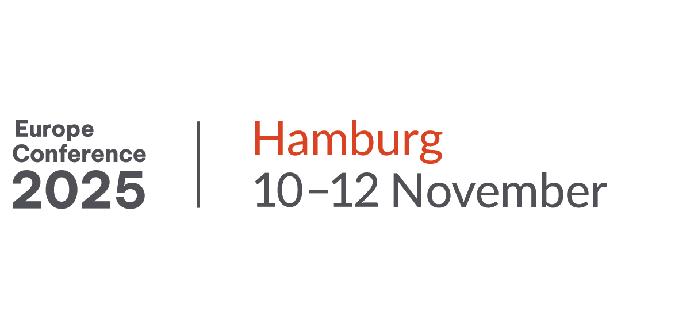
From optimising policy compliance to predicting demand, experts at Domo share five ways data is reshaping corporate travel

When expectations keep rising and margins remain under pressure, data has become one of the most valuable assets in corporate travel. Connecting and acting on real time data is now critical to scaling efficiently, delivering personalised service and running high-impact, cost-effective programmes. Here’s how data is transforming corporate travel:
1. Being a competitive differentiator
Today’s business travellers expect answers instantly, not weeks after a trip. That’s pushing TMCs beyond static reporting towards live, governed insight that can be explored on demand. With platforms like Domo, TMCs and their clients can get a customised, live view of spend, traveller behaviour and policy compliance, so decisions can be made quickly and confidently. Kelly Luney, Travel Technology Director at Good Travel Management and CT Business Travel (travel division), says: "We believe data is the key to transforming
travel, not just in how we operate, but in how we anticipate and respond to the needs of our clients. With Domo, we’re able to bring together live insights from across the business and act on them instantly."
2. Achieving speed to value
Drawn-out data projects can lose momentum before results are seen. When systems are connected rapidly and real-time insight is available within weeks, benefits are realised sooner. Real-time dashboards tracking traveller locations, sustainability metrics and client performance allow teams to act quickly when conditions change. Domo works with Take2Eton, which launched customised dashboards in days, using natural language AI dashboard builders to enable data discoverability. The TMC's CTO, Rob Cope, explains: “The ability to provide real-time self-serve analytics has allowed our clients quicker and more relevant access to our data, as each client benefits from customisation. This level of
customisation is only achievable with a platform like Domo. However, data extends into a bigger role beyond reporting and visualisations. We’re using Domo and its AI agent functionality to significantly streamline our operational processes. This has allowed us to replace much of the legacy-GDS orientated workflow and replace with a transformative, AI-driven solution that has significantly deepened the automation we can create.”
3. Automating to empower people
Even the best-run travel programmes can be slowed by manual checks and reconciliations. Domo’s AI agents can flag out-of-policy bookings, track unused tickets and apply negotiated rates, often before the human eye would spot an issue. As Domo’s Account Executive, Claudia Lewis, notes: “AI and automation isn’t about replacing people; it’s about giving agents and account managers time back to focus on what matters to clients.”
4. Connecting the travel tech stack
Travel data lives in many systems: GDS, booking platforms, HR systems and finance tools, making it hard to see the full picture. Connecting those sources into a single view allows TMCs to manage duty of care, compliance and supplier performance more effectively. During the pandemic, one Domo customer linked itinerary data with Covid-19 dashboards to help clients quickly assess trip safety and make informed decisions.
5. Learning from proven innovators
In other sectors, data is transforming customer experience. Retailers use predictive analytics to anticipate demand, while e-commerce companies personalise offers in real time. These ideas translate well to business travel. Predictive modelling can forecast booking volumes months ahead, helping buyers secure better rates before demand peaks. By adopting proven approaches, TMCs can unlock fresh value for clients and stay ahead of expectations.
On September 30, Domo will host a webinar exploring how TMCs and travel teams can use these capabilities to make faster, betterinformed decisions and deliver greater value. For info email: emeamarketing@domo.com domo.com.


“A new era of collaboration” is how accommodation specialist mysa is describing its new solution, Optimise by mysa, which is designed to fix disconnected systems and fragmented relationships in the sector for travel managers, TMCs and suppliers. Powered by intelligent automation and meaningful data, it consists of six stages – evaluation, preparation, consideration, implementation, distribution and fulfilment. For buyers, it promises to help them gain total control over their accommodation programme with data-driven insights, extended stay management, duty of care compliance and a future-ready RFP process. Meanwhile the technology helps TMCs incorporate extended stay properties, manage vendor relationships more efficiently and provide their clients with real-time accommodation intelligence. And it brings benefits for accommodation providers too, from hotel chains to extended-stay specialists. mysa.global

In no particular order, here’s our pick of the top tech innovators and innovations shaking up the world of business travel
Domo is an end-to-end AI and data platform helping TMCs, such as Take2Eton and Gant Travel, turn real-time data into action. It enables TMCs to centralise their data from across GDS, OBT and NDC, alongside core back-office systems. Once data is in Domo, TMCs can go far beyond reporting, accelerating to insight and action, by automating key workflows such as invoicing or data reconciliation, streamlining operations and reducing manual effort. Users can create dashboards instantly and build AI agents to take intelligent action on data in a way that is bespoke to each TMC’s business and its clients’ needs. domo.com

Brought to you by the people at Oversee (formerly FairFly), AgentSee automates complex service workflows, such as cancellations, exchanges and group bookings, which are resource-intensive, nonrevenue generating and prone to human error. By leveraging AI-driven workflows and natural, human-like responses, AgentSee reduces the manual burden on agents and improves operational efficiency. AgentSee claims to automate 70% of incoming requests, cut handling time by over 50% and achieve 99.9% accuracy. It’s already helping global TMCs improve SLAs and unlock internal capacity. One to watch. oversee.biz

Inntel has partnered with Venue Directory to develop Instant Book, an online tool which allows clients to search, select and confirm UK-wide venues for small meetings in real time. Integrated into its LOGiC OBT platform, it is designed for groups of up to 20 attendees and bypasses the traditional inefficiencies of email enquiries and phone calls. Users simply log in to LOGiC, search their location, review real-time availability and pricing, choose room layout, refreshments and AV requirements – and secure with a few clicks. Inntel says the entire booking takes under three minutes and is available round the clock. inntel.co.uk/instant-book













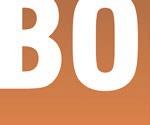
















Lokulus is back in our list due to a number of key improvements to its AI-powered platform. Real-time airline push notifications, enriched PNR visibility and automated prioritisation now feed directly into the agent desktop, helping agents act faster and never miss a critical update. Advanced dashboards offer full visibility across clients, teams and channels, tracking SLA adherence, productivity and handling times in real time, while richer traveller profiles and WhatsApp integration is enabling agents to deliver hyper-personalised service across every touchpoint using history, context and preferences. lokulus.co.uk
Officially introduced in May 2025, Avenir: Travel Edition is a next-generation platform designed to simplify travel bookings. Built on Spotnana’s open, API-first infrastructure, Avenir unifies booking, expense tracking and policy management, backed by 24/7 support from Direct Travel. For travel managers, the platform offers real-time
reporting, automated policy enforcement and deeper insight into programme performance. For travellers, it promises a consumer-grade interface, fuller content and the ability to book, modify or cancel trips directly. It also reduces booking time with pre-filled profiles, self-serve changes, greener rail options and more. They’ve thought of everything. dt.com/avenir
AI Book claims to be redefining the corporate booking experience by eliminating the complexity that’s plagued business travel for years, getting rid of browser tabs, back-and-forth emails and spreadsheets. Powered by ‘ello’s conversational AI and integrated with ALTOUR’s global travel expertise, it allows users to book air and hotel in a single conversation using natural language, text or speech. Travel managers stay in control with built-in policy alignment, customisable approval flows, and real-time reporting, without compromising traveller speed or flexibility. But it goes further: AI Book predicts next steps, flags policy violations and recommends compliant alternatives before travellers ask. A return trip from London Heathrow to JFK for three travellers was apparently planned, quoted, and booked in just 67 seconds - all through one intelligent conversation. altour.com

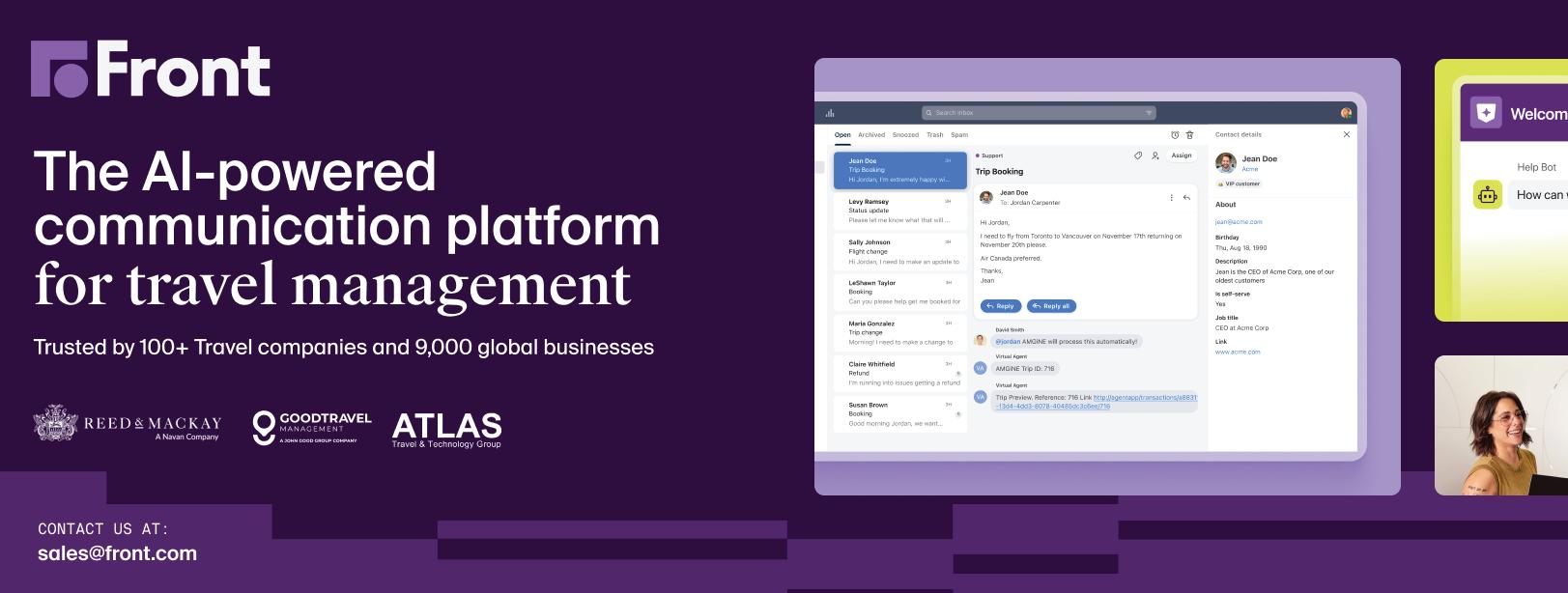




PredictX is back in our hotlist for 2025 thanks to its latest innovation, Cogent, an intelligent workforce of AI Agents giving travel buyers and procurement teams extensive data analysis and strategic support. Powered by advanced AI, not only does Cogent answer complex questions about any aspect of the travel and expense programme, it also works like virtual FTEs integrated within the travel manager's team, supporting and performing tasks like sourcing, risk management and communications. Users engage with Cogent Agents using natural language and can ask complex questions involving industry jargon, multi-currency analysis or regional specifics. Cogent Agents are trained to actively look for savings opportunities that humans might miss and perform continuous auditing and compliance detection. predictx.com






Amadeus Cytric’s AI Assistant, embedded in Microsoft Teams, is designed to give travellers a seamless, conversational interface to book trips and answer questions about trip details, such as airports, travel duration and leisure activities in a destination. Without toggling between platforms, this AI Assistant instantaneously provides the three preferred flight and hotel options – with additional content to come - taking into account the company’s travel policy, cost, carbon emissions and comfort. Currently in development and piloting with customers like Microsoft, the AI Assistant claims to be a catalyst for change. Future developments will provide even more personalisation and proactive suggestions to users at all steps of the trip. amadeus.com
It’s been a long time coming, but with around 85 million users it’s easy to understand why. By the end of this year, the migration to the new Concur Travel – maybe the largest tech migration in our industry's history – will be complete. The updated version is already providing greater access to rich content and exciting new functionalities. Due to the way it’s been built, it can be completely flexible. This year will see SAP’s generative AI copilot Joule make its debut, meaning Concur Travel users can have automated assistance to plan locations for offsite meetings. Joule can provide location recommendations, plus high-level flight and hotel cost estimates, based on attendees’ origination points. But it won’t stop there. From direct connects and hotel aggregators to European rail, Concur says “essentially anything is possible". concur.co.uk
When HRS launched Copilot earlier this year, initial trials with Deloitte pointed towards 18% higher savings compared to traditional programme optimisation. This AI-first platform is designed to fully orchestrate hotel programmes for business travel and meetings with just a single click. The technology autonomously drives insights and actions, driving newfound speed from real-time data analysis to tactical actions that are specifically aligned with programme goals and objectives. Copilot can analyse both managed and unmanaged data, historical and projected, pulling in data from the HRS platform as well as external data via APIs. The technology analyses data in real-time, triggering and implementing actions to influence booking behaviour and promote preferred properties. Similar 'one-click' scenarios improve elements beyond procurement, such as booking optimisation, payment, reimbursement and VAT Reclaim. And Copilot integrates into any managed travel eco-system. copilot.hrs.com
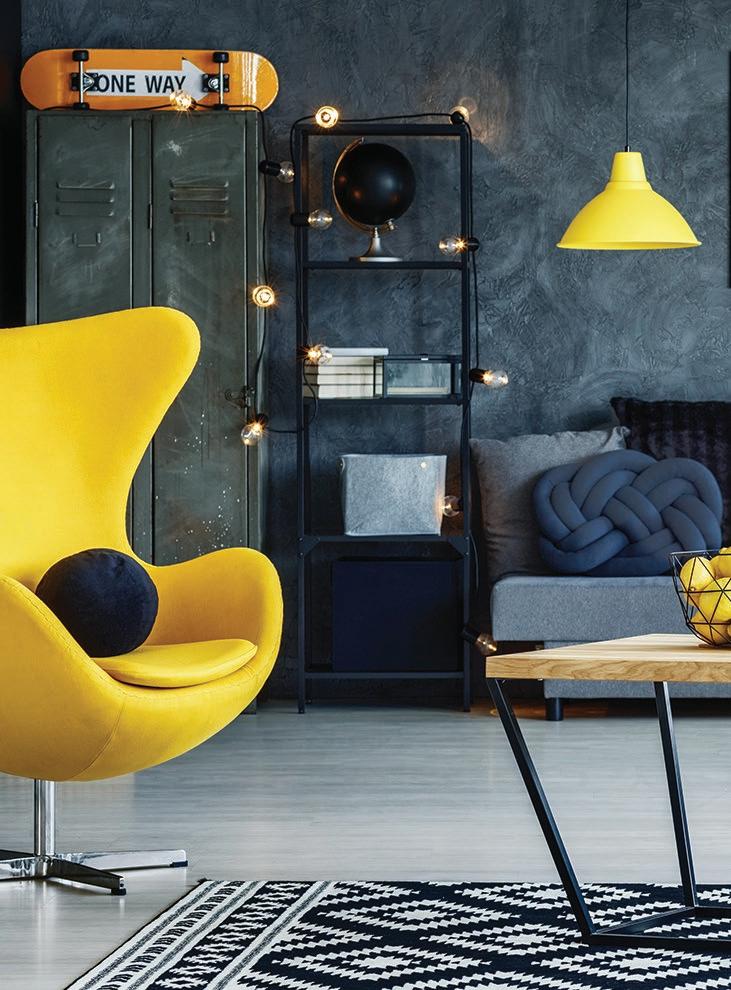









We chat with Tony Edge, who recently stepped into the role of Head of Product and Technology at Focus Travel Partnership, about ensuring Focus partners stay ahead of the tech game.










Distribusion Technologies simplifies ground transportation distribution worldwide, enabling global corporate travellers to easily access a worldwide portfolio of carriers from intercity rail to airport transfers, ferries or urban transportation, through a standard commercial framework and a single full feature API. It’s an intuitive interface with real-time pricing, availability and instant confirmation. It supports instant bookings and comprehensive management, including itinerary changes, cancellations and ticket reissues, and enables booking of corporate fares, discounts, and loyalty cards. Features like seat map selection, flexible fares and smart filters allow agents to offer a personalised, policycompliant experience. A sales dashboard provides detailed booking data and insights and by offering all modes of ground transport, including rail and bus, the portal helps TMCs promote lowemission options, supporting clients’ ESG goals. What is there not to like.
distribusion.com





What is your role at Focus Travel Partnership?
I lead our efforts to deliver smarter, techdriven innovation and support tailored to the individual needs of SME TMCs. One of the first things I did when joining Focus in June 2023 was to establish the Focus Innovation Group. The group is made up of senior leaders and IT managers from a mix of our travel management company (TMC) partners representing a cross section of business sizes and client specialisations. Historically the strategy was to find tech products and providers that gave options but now we’re homing in on solutions what will directly improve a TMC’s operational processes to make them more efficient, or to generate revenue streams. We aim to support our partners to perform at their full potential so they can better meet the needs of their clients.
How do you select tech products and solutions? What’s the process? It usually begins with a recommendation from a partner or an intro at a tech event. I will do some research to establish if there is real benefit to our partners – will it fill a gap, boost efficiency, bring in new revenue, or is it a better version of what they’re already using. If it meets that criteria, it will then be introduced to the Focus Innovation Group to get their perspectives. We will ask for a demo and then the group will rate it, giving it a score based on the benefits, the cost and the ease of implementation. If it is approved, I will then go back to the partner to negotiate a preferred supplier
agreement on behalf of the whole partnership. Individually, some of our partners might be relatively small and won’t have the leverage of a larger TMC but collectively the Focus partners have significant buying power.
Is it difficult to keep all of your TMC partners happy?
Our partners are diverse and are at different stages of their tech journey. My job is to make sure nobody gets left behind. I am here to help them get access to an eco-system of end-to-end solutions that would rival that of larger TMCs, but we don’t mandate the use of technology solutions or products. It is up to each TMC if it is something they want and need.
What tech solutions have you recently brought to the partnership and why?
Earlier this year we signed a new commercial agreement with Arbitrip, a hotel booking platform which sources the best deals across over 1.8 million properties. More recently we partnered with Front, an AI powered omnichannel communication platform that helps TMCs streamline their operations, triaging emails, updating itineraries or handling cancellations. We’d been speaking to them for a while and they were able to demonstrate that they really understood the needs of a SME TMC.
What’s next?
We’re looking at how else AI can help our partners save time and improve the efficiency of their operations. Technology is now engrained in everything they do and it’s no longer seen as a cost centre or a drain on finances. It has to be a way of saving money or increasing profit and, ultimately, improving processes so they can provide better customer care. focustravel.uk
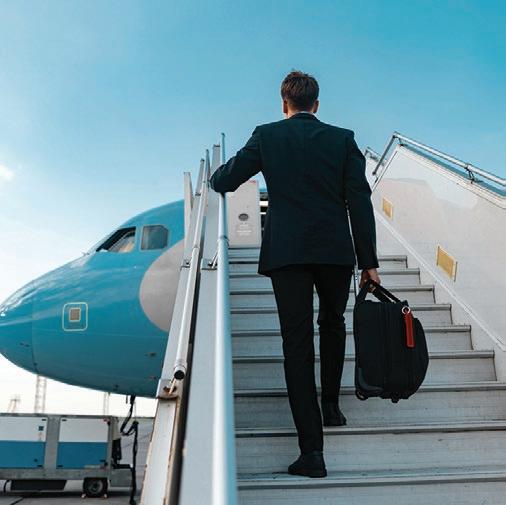
Calling itself "an AI corporate travel agent right in your travellers’ pocket", SkyLink promises to shift corporate travel from clunky apps and lengthy calls to quick and simple conversational user interface embedded in everyday work tools, while also streamlining compliance, reducing support load and helping organisations cut costs. This AI-powered corporate travel booking solution sits within a company’s enterprise chat system like Teams and Slack and uses natural language text or voice conversation so that travellers and travel arrangers can quickly and cost-effectively book policy compliant trips with preferred suppliers in 75-plus languages. For example, travellers can say “Book me a flight from LAX to New York tomorrow evening” and receive options that respect corporate policy and loyalty preferences – all within 30 seconds. Being TMC, OBT and GDS agnostic, SkyLink integrates into any tech stack, giving travel and procurement managers oversight through dashboards, compliance controls and real-time visibility. tryskylink.com


Launched at this year’s GBTA Convention in Denver, BizTrip.AI promises to reinvent corporate travel management with agentic AI that uses historical data and preferences to anticipate traveller needs and deliver relevant, tailored options that are compliant with corporate travel, instead of searching through hundreds of results on flights and hotels. Currently being trialled by large enterprise organisations, including Moderna, as well as some US-based TMCs, it can achieve up to 8% in travel cost savings – including up to 4% through persistent price tracking and re-shopping, and an additional 4% through reduced fees, employee time savings and decreased leakage. It also promises to give employees a seamless travel and planning management experience, leading to higher satisfaction and productivity. biztrip.ai

Already trusted by more than 100 TMCs, including Reed & Mackay, Stewart Travel Management and The Appointment Group, Front is a modern customer service platform that streamlines traveller and supplier communication, offering a scalable alternative to legacy email and ticketing systems. Instead of juggling siloed tools and overflowing inboxes, Front unifies email, phone, SMS and WhatsApp into one collaborative workspace, enabling teams to automate manual tasks, respond faster and deliver enhanced customer service at scale. Repetitive tasks like itinerary confirmations or change requests can be automated, allowing agents to focus on complex, highvalue interactions. SLA tracking, team analytics, while real-time performance dashboards give managers the tools to coach staff and improve outcomes proactively. Customers are seeing faster response times, often under 60 minutes, alongside improved client satisfaction and agent productivity. front.com


Co-founded by former EY Global Head of Travel Karen Hutchings and Kessie Bratko, previously with BCD Travel, Pioneera is an AI-driven platform that delivers personalised nudges to travellers to encourage smarter travel decisions that align with company goals around policy compliance, cost control, sustainability and supplier partnerships. These nudges are sent before travel takes place, using their preferred channels such as Microsoft Teams, Slack or email. Nudges can also spotlight negotiated supplier promotions to ensure benefits are fully utilised. Pioneera is TMC-agnostic and works seamlessly with any OBT, making it easy to integrate regardless of the existing tech stack. It is also fully scalable and globally deployable, with the only requirement being access to the original and ongoing data feeds. pioneera-ai.com
We check in with Jenny Sabineu at Salesforce to find out how the new Concur Travel is helping the global software company and its travelling employees
What stage are you at with the migration to the new Concur Travel?
One of the earliest adopters, we went live with the new Concur Travel in the US in November 2023 and then began the rollout to the rest of the world from November 2024, starting in the UK.
Already we’ve seen our online adoption rate – which was already high at 95% – rise even higher to 96%. This migration will lay the groundwork for the next generation technology for our travel programme.
What are the key benefits to your organisation?
One of the key drivers is the greater access to NDC content. As every travel manager will know, the biggest ‘noise’ from travellers relates to being able to find fares cheaper elsewhere, but with the help of the new Concur Travel and our TMC partners, we have been able to act really fast to turn on NDC where it’s available.
As a result, we’re hearing less of that noise on our internal ‘Road Warriors’ Slack tool on the Salesforce platform, and we’re also seeing savings due to the access to additional fares and to continuous pricing.
What about the benefits for your travellers?
Of course, our travellers don’t know or care if they’re booking an NDC or an EDIFACT fare – and nor should they. They want the right schedule for the lowest price and they want to find that in fewer clicks.
Thanks to the new consumer grade user experience, and how the air content is displayed and filtered, they are now booking in just a few clicks and not wasting
time trying to find a better option. We have seen an increase in speed (sometimes up to 30-40%) with a more streamlined interface, from booking to check out. We're also seeing an increase in Tripit Pro usage as Concur has created a new, simpler, Triplink connection process.
How is Concur’s continued investment in AI helping you and your travellers?
It’s already bringing significant time saving benefits with Concur Expense reporting. I saw that first hand after a recent trip when I got back and my month’s expense report had already been filed, based on the photos of receipts I’d taken in the Concur app. In future I know it will help personalise searches, so it will remember that I fly out of a certain airport or will suggest hotels based on where I’ve stayed before. It will make bookings even more seamless.
What do you expect from Concur and other technology partners?
As a technology company, we expect from our partners what we’d expect of ourselves – trust and transparency, innovation and collaboration to ensure customer success.
Speed is also important to us and as an early adopter of Concur Travel we were able to change things quickly when needed and enjoy the benefits when new features are rolled out.
What’s next?
We can really see AI helping with that first and last mile, for example recommending public transport options from the airport

instead of using taxis, and telling travellers exactly what train line they need to get to their hotel.
Concur’s integration with Trainline and the work it’s doing to lift point of sale restrictions for European rail travel will also bring significant sustainability benefits, encouraging more travellers to switch from air to rail as part of our policy, driving even more compliance.
Once we can also see a mixed air and rail display, which is coming by the end of this year, that will also make a huge difference.
The ability to do carbon budgeting, also coming in quarter four, will also help us reach our emissions reduction goals. We are doing lots of work in this space and see big opportunities with Concur as a partner.
Jenny Sabineu is Senior Manager, Travel (EMEA/LATAM) and Sustainability, at Salesforce, a global software company with 75,000 employees, 60% of them active travellers, and with an annual travel spend of $250 million.
As an early adopter we were able to change things quickly when needed and enjoy the benefits when new features are rolled out”

Tavel buyers and representatives from leading travel management companies enjoyed a night of networking at the second Business Travel Magazine Dinner Club of 2025. They gathered at The Dorchester for welcome drinks before sitting down for a three-course dinner. The invitation-only event was sponsored by United Airlines, South Western Railway, SAP Concur and Holiday Extras for Business.











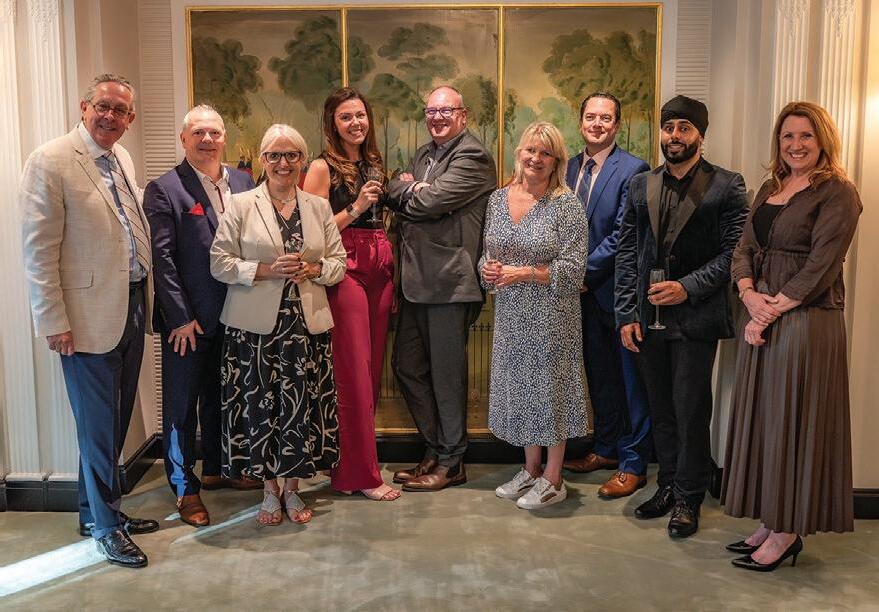


















Omri Amsalem, CEO Atriis Technologies, shares his expert view on the shift to New Distribution Capability (NDC) and the future of airline distribution
Is NDC actually delivering or is this just new tech masking old issues?
It is delivering – but in patches. Execution varies widely and inconsistencies remain. The promise is richer content, personalised offers, better pricing tools and an improved traveller experience. Some technology, like continuous pricing, is moving us in that direction. But NDC isn’t a silver bullet, it’s just one of many distribution channels. Our approach is to treat NDC as we do any other content source, while shielding users from gaps in the experience.
Do you see GDS being replaced entirely or are hybrid models here to stay?
Hybrid models aren’t just here to stay, they’re necessary for the foreseeable future. GDS’ are evolving rather than disappearing and they remain critical for many TMCs, especially when managing complex itineraries, multi-segment itineraries and
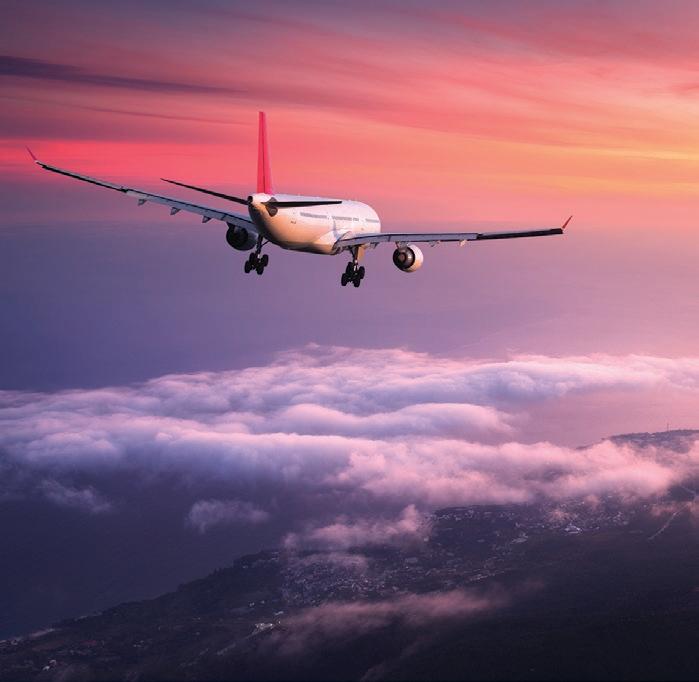
servicing needs. Legacy EDIFACT technology still outperforms NDC and newer APIs in these areas, making hybrid solutions unavoidable. At the same time, GDSs are adding value beyond distribution by enhancing their tech offering, which will only strengthen their relevance.
How do we reconcile airline content control with agent needs, especially on servicing?
This is the crux of industry tensions today. Airlines want control over pricing and distribution, but agents need full servicing capabilities and workflow consistency to support travellers. TMCs also rely on robust reporting, invoicing and back-office services. The concern is that NDC could push us backwards, requiring more manual effort for the same volume. Our role is to bridge that gap, equipping agents with tools to manage NDC’s limitations and the direct connections, while developing innovative solutions for downstream process that airlines don’t address but TMCs depend on.
How does Atriis navigate the messy reality of inconsistent NDC content but still support TMC/corporate needs?
When we built our platform, resilience to inconsistencies was a core requirement. NDC was meant to standardise, but in practice it’s the opposite so we normalise fare types, ancillaries and branded content. This ensures agents and travellers have a consistent experience and can shop intelligently even when airlines behave differently. Sometimes we deliberately expose the gaps so users can make informed choices. Most importantly, we’re
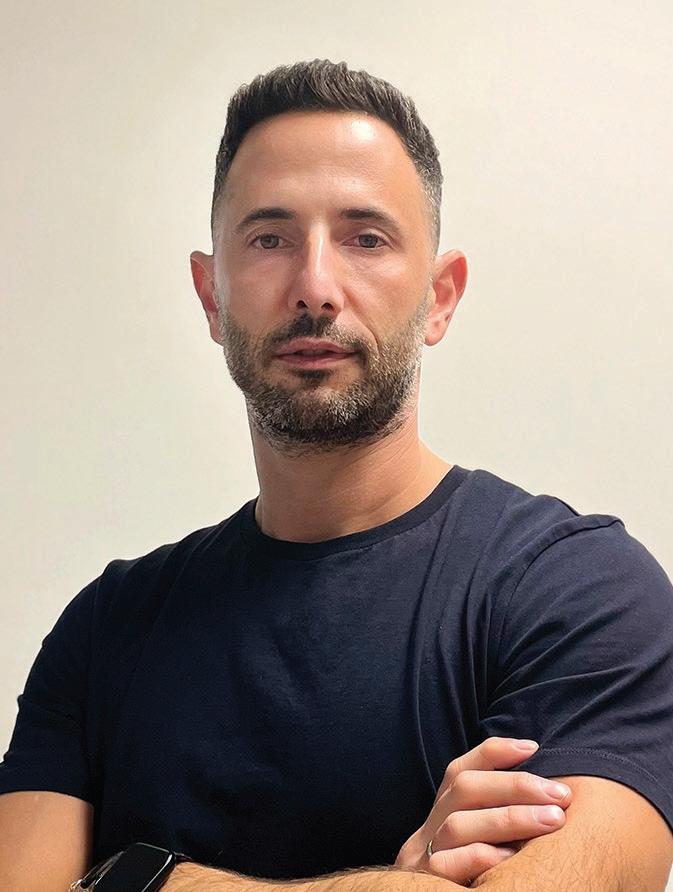
not betting solely on NDC; we’re creating an environment with choice, so travellers and agents are always covered.
When every airline API behaves differently, how do you ensure a consistent user experience?
We don’t expose raw APIs to users. Atriis acts as an obstruction layer; we standardise what can be standardised, build compensating logics where necessary, and fall back on alternative content sources when functionality is missing. We invest heavily in user experience, for travellers and for agents, ensuring a consistent journey while shielding them from back-end chaos. For example, if a user rebooks a ticket, the process should be the same regardless of what’s under the hood. From day one, the aim wasn’t only to save distribution costs, though that’s a factor, but to move beyond being a commodity on a cryptic screen and give a better shopping experience. It will be a long journey but we’re heading in the right direction. atriis.com
Most importantly, we're not betting solely on NDC; we're creating an environment with choice, so travellers and agents are always covered”
Just over a year since going live with Front, a modern customer experience platform, Stewart Travel Management is already seeing vast improvements in its customer service. We checked in with the TMC’s Reservations Manager Claire Bonner


The background
Stewart Travel Management, part of Brooklyn Travel Group, is a corporate travel management company based in Glasgow with 43 employees, including senior management, sales, reservations and administration teams. Its clients, mainly SMEs, cover a range of sectors. The majority of enquiries from its clients come via email.
The challenge
After using Outlook for many years, the company wanted to find a new email
management system to improve the way customer enquiries were shared out among its reservations team and to improve response times.
Its reservations team was split into three sub teams, each one looking after the needs of specific clients. When customer enquiries came into Outlook, they were routed to go into one of the three inboxes according to which team had been allocated to them.
“With Outlook, there was no real visibility of how many emails were coming in over a month unless we counted them manually,” explains Claire Bonner, who heads up the reservations team.
“There was no way of measuring or reporting on response times until the email was actioned. Emails were coming in thick and fast and we were relying on the team to pick them up, decide which were urgent, and then act on them.
"It could lead to a culture of cherry picking, which created an imbalance. It meant that those who were less confident would only pick the simpler enquiries, and were perhaps not gaining the experience and knowledge to progress in their roles.”
Stewart Travel Management found an email management system which promised to address some of these issues, but once it
went live the TMC discovered numerous flaws. “After a stressful few weeks we stopped using it and then took our time to find a better one,” says Bonner.
“That’s when we started talking to Front.”
The process
“It was about six months from the first conversation with Front until we went live and implementation was really straightforward,” Bonner explains.
“We had a dedicated implementation manager throughout the whole process. Front had worked with other TMCs before, which helped. The training was brilliant –really clear and concise. After going live, I was expecting a wave of queries from the team, but everyone loved it from the get-go. It was so much easier to use than the system we had tried before.
"The learning curve is low and we soon discovered that it does all the functions we needed that Outlook couldn't do.”
The result
A year on, Bonner has seen numerous benefits from using Front – for her reservations team, for herself as Reservations Manager, for the business –and for the TMC’s corporate clients.
“Now our team is split into six sub teams and our inboxes work on a load balancing function, not a round robin,” explains Bonner. “Emails are routed to the correct team and the workload is evenly distributed by assessing how many emails they’ve been assigned. It means the team can be more organised and aren’t overloaded with too many emails.
“It has stopped any cherry picking. Those who used to avoid handling more complex enquiries are now learning how to work through them. It’s been a great training tool.”
A snooze function allows consultants to file away enquiries that don’t need an immediate response and set a time to revisit. Another feature, Front AI Compose, helps agents draft replies to enquiries, enabling them to choose replies which are formal, more friendly, or empathetic depending on the nature of the email and the relationship with the client.
Front's shared inbox workspace increases visibility for managers and shared drafts make it easy for Bonner to help out with any responses.

“It’s given our agents more confidence in their responses and has nurtured closer relationships with customers,” says Bonner.
“For me, it’s been invaluable. It allows me to manage productivity as I can just pull up reports in a click and see response times for each team or team member.
“It’s very user-friendly and I can easily filter by each client or team member, type of email, or subject line."
Thanks to the data Front provides, Bonner can see that the TMC's average response time is now 39 minutes, significantly below the maximum target response time of 1 hour and 30 minutes that is stipulates in client contracts.
“The data we can get from Front has been very useful in RFPs as our sales teams can share our average response times with prospective clients,” she says.
Sharing these reports with existing customers also helps them understand the booking behaviours of their travellers.
On the rare occasion of a delayed response, Front allows agents to set alerts to help the reservations team monitor progress and prioritise responses.
The team operates from 7am until midnight, and Front’s efficient internal communications system makes shift handoff seamless.
“There’s been so much positive feedback,”
It's given our agents more confidence in their responses and has nurtured closer relationships with customers”
says Bonner. “When I do my monthly reviews the teams are much happier, which helps provide better customer service for our clients. It’s a win-win.” front.com
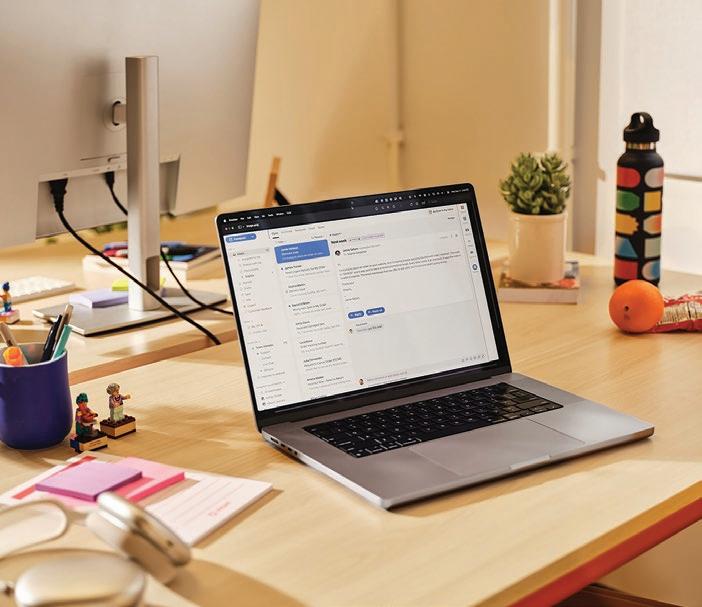

Being part of the Business Travel People Awards is an enriching experience not just for those who enter but for the judges too. Read on…



he winners of the 2025 Business Travel People Awards will be announced on September 30 in central London. Finalists in the 20 categories will gather with colleagues and industry peers at the Grand Connaught Rooms to find out who will be walking away with the winning and highly commended trophies this year.
As the big night approaches, we check in with some of the 22-strong judging panel to find out what they took away from the judging process and why these awards are so important to the industry.
Leigh Cowlishaw, Judges Chair and Managing Partner Black Box Partnerships






"By far being a judge is one of my annual highlights. I absolutely love reading all the submissions and seeing the passion and enthusiasm shining through. It also opens up my eyes to new approaches, new developments and new talent in our industry. We need to continue to strive forward and these awards provide the platform to enable this.”
James Foice, ASAP (Association of Serviced Apartment Providers) Chief Executive
“The judging process highlighted just how resilient and adaptable people in our industry are. From handling complex travel demands to leading transformation in the wake of global challenges, the entries demonstrated a level of professionalism and passion that’s easy to underestimate. It’s clear to me that the business travel sector isn’t just about logistics or policy – it’s about people solving problems in smart, humancentred ways.”

“The entries demonstrated a level of professionalism and passion that’s easy to underestimate”






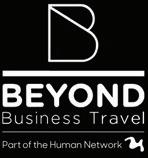


Barbara Kolosinska, Managing Director, C&M Recruitment
“As a recruiter, the judging process shows me that we have some excellent people coming up through the ranks and future leaders of the sector. It gives me hope

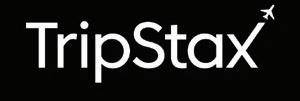


that we aren’t losing as many people as we think and we need to nurture this and attract even more great people. Our industry is all about people. It’s a people-focused industry and that’s why we are all part of it. It’s imperative that people are recognised and rewarded so they feel empowered and proud of their achievements and they want to continue to be part of it.”
Karen Hutchings, Founder and CEO Cobb & Hutch Consulting
“It was good to be exposed to younger future leaders and hear about their achievements. It demonstrates that the pipeline is positive, which is reassuring. We need to be able to highlight exceptional performance and showcase what they have achieved to encourage others to challenge the norm and develop an innovative mindset.”

Elizabeth Anderson, Manager Global Travel Operations, Inmarsat


"It is the passion, energy and enthusiasm of the people involved that make the business travel industry such a great industry to work in and that passion continues throughout people’s careers. Technology can easily be replicated but it’s the people that provide the differentiating factor in the industry, along with their enthusiasm and creativity."
Dani Ives, Head of Commercial, Focus Travel Partnership

“It is the passion, energy and enthusiasm of the people involved that make the travel industry such a great industry to work in”
Clive Wratten, CEO, Business Travel Association
“Excellence should be celebrated. When you reward good work, you encourage more of it. People create the brands and people create reputations, not companies. If you're going to give credit, give it to the people who are the power behind the successful brand.”
Paul Dowdy, European Category Manager, Travel and Marketing, European Procurement Operations, Chubb

“Travel people, especially business travel people, have the ability to change their industry. We have so many transferable talents and we need to ensure people feel appreciated, loved, welcome and recognised in our industry. The people in any business are the backbone of the company, and one of the reasons why I love the Business Travel People Awards is because it celebrates the teams, the individuals and the people that make these great companies.”
Carlos Almendros, Director Strategic Sourcing Travel, Card and Marketing Global Procurement Services, Cisco Systems Inc
“The travel industry is always evolving and expanding its coverage into many ‘new’ areas, which five to 10 years ago were not perceived as major changes, for example AI, NDC, innovations in ticketing process and simplification for the traveller, and all of the submitted testimonials showed this.
I’m sure all of the judges also learned from these submissions.”
Lynne Griffiths, founder and CEO, Sirius Talent Solutions
“We are first and foremost a people industry, so recognising and then celebrating and rewarding successful talent is vital in order to retain them as well as attract new talent. There are many award opportunities for the companies/brands in our sector, but the Business Travel People Awards enable recognition and celebrate achievement and success for the individuals that make those companies great.”

“The nominees have shown impressive commitment to improving business travel and it’s inspiring to see such creativity and leadership in this field. It validates why I have worked in it for 37 years. It is a known fact that people thrive on being rewarded. Good work should be recognised and it ensures those individuals and teams feel valued and know they are doing something good for the industry.”
The Business Travel People Awards 2025 will be held on September 30 at the Grand Connaught Rooms, London. Book now at thebusinesstravelmag.com
“It is a known fact that people thrive on being rewarded. It ensures those individuals and teams feel valued”
Clive Wratten, BTA Chief Executive Officer

THE BTA’S LATEST REPORT, Beyond the Boardroom, reveals what many in our industry already know - that the 'typical' business traveller doesn’t really exist. Today’s business travel isn’t all airport lounges and hotel bars. It’s time we retire that stereotype.
Business travellers, or what we are now referring to as people who travel for work, could be engineers visiting construction sites; doctors heading to a training conference; teachers,
technicians, researchers and field workers travelling up and down the country to get the job done.
It turns out, tradespeople are among the biggest UK travellers, with 30% of them hitting the road multiple times a week. Other top sectors include automotive, healthcare and public sector.
Anyone travelling for work needs to be punctual and who hasn’t dealt with the frustrations of trains being delayed or cancelled? They are ultimately unreliable. It’s therefore no surprise that cars are what people resort to most frequently when travelling, with 29% of
Scott Davies, ITM Chief Executive


people having that preference. But just one car journey with one passenger will emit much more CO2e than getting the train.
It’s not that we lack greener alternatives, but they’re often just not practical. We need action, not just ambition.
Key partners in all of this are TMCs, with the tools, data and knowledge to help reduce the

HAVE YOU EVER left a job or company under circumstances that weren’t entirely of your own choice? I have a hunch that, across a career of 40 odd years, it will probably happen to most people a couple of times.
The circumstances can range from the controversial to that old (bitter and unpleasant tasting) chestnut, redundancy.
A few months ago one of my daughter's colleagues in her degree apprenticeship cohort was made redundant at the end of her first year due to M&Arelated efficiencies. It is unfortunate in the extreme to lose both your first big job and your university degree due to a decision made in head office by someone you will never meet and I really felt for her.
Speaking with my friends and contacts who have been through unscheduled role departures at
environmental impact of trips. Then companies can actually hit their green targets, and people traveling for work can get where they're going more easily. Ultimately, this isn’t just about business travellers. If we fix rail, we boost the economy, reduce emissions and make travel better for everyone. So, what are we waiting for? thebta.org.uk
various career stages a number of things stand out.
As with all kinds of trauma, it’s aspirational to move past the initial period of injustice, loss and negativity and look to adapt and thrive within your new situation and the potentially wonderful upsides and opportunities now available to you.
Stay positive and focus your energy on the future rather than what has transpired. Look after your mind and body. Take the time to reset your idea of what a happy life really looks like, and how work complements that.
Secondly, nurture and deploy your network. Our personal brand is something we should continuously build, and your network can help to amplify it and bring opportunities onto your radar. In almost all cases things work out for the better. And once you’re on the other side you can resolve to look out for anyone else who may be on a similar journey. itm.org.uk
Scott Wylie, Chief Technology Officer, TripStax

IN 1972 I’d only been on the planet for 12 months but from what I’ve been told, it was a great time for kids: bouncy space hoppers, Raleigh Chopper bikes, T. Rex and David Bowie, and gallons of Corona cherryade.
All those are long gone. Yet, amazingly, there is a computing
now made through other channels, such as booking.com or directly via the airline’s website. Non-GDS content is often cheaper and offers more options on a number of fronts.
But many TMCs still rely on GDSs to power all their processes, including maintaining their 'filing cabinet' of booking records. Therefore, when they handle a non-GDS booking, TMCs create what’s known as a
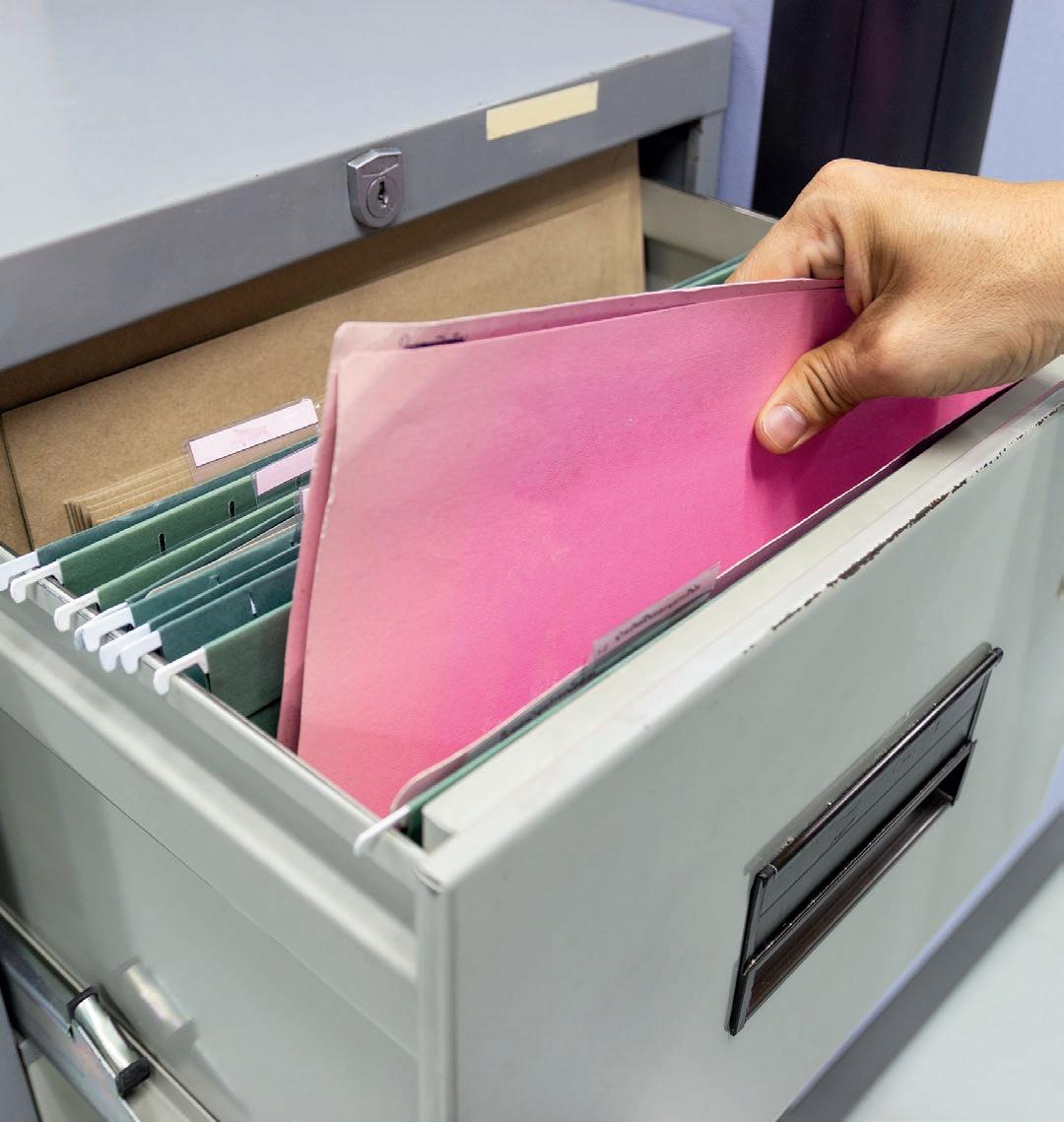
format dating back to those earlier days which is still used in our industry today. Plain text files (and yes, that’s every bit as dated as it sounds) is the technology underpinning passenger name records (PNRs). Let’s unpack this a little. A PNR is the booking record created when a reservation is made through a GDS. Around 40% of business travel bookings are
‘passive’ segment to store the reservation data inside the GDS. As more bookings go outside the GDS, the number of passives is mushrooming. At TripStax, we recently surpassed one million passive segments.
What’s wrong with passives, you might ask? Well, there’s the cost and inconvenience. Hosting passives costs the GDSs money and creates a burden around
data storage too, which is why they are cracking down, either charging TMCs for all passives or for exceeding a stated percentage of all PNRs. At a couple of quid a time, it quickly adds up.
Perhaps even worse, passives only carry limited information. The clue’s in the name: they are historic and cannot be updated if the traveller changes or cancels their booking.
That’s a serious challenge for essential functions like traveller tracking. Say an aircraft crashes and you want to know if one of your team was on board. The passive PNR might tell you they took a different flight and you wouldn’t know they had switched.
The crazy thing is that passive segments aren’t needed any more. Modern TMC technology, like the TripStax Core, is a sophisticated data processing architecture using API connectivity. It’s active, not passive: no matter the source, the reservation is directly piped from the supplier so that amendments are instant and automatic.
That means records are current and accurate, leading to better traveller tracking, precise invoicing and other important functions like emissions counting.
It's hugely significant that travel technology is evolving but awareness around its capabilities is key.
It’s time to stop using passive segments and getting the GDSs to masquerade as old filing cabinets and start capitalising on all the goodness and flexibility that comes with the latest technology. tripstax.com
Results of a survey that formed part of FCM Meetings & Event’s inaugural Global Trends Report, in partnership with Cvent, showed that almost 40% of respondents did not have a clear view of their meetings and events budget for this year. 40%
A BCD Travel survey of 1,035 global business travellers found 30% said they didn’t feel safe in their hotel location and 70% double-lock doors when in their room, which goes some way to explain why location (77%) is a major factor in hotel choice.
A survey of 600 C-suite professionals based in the UK, US, Germany and Spain, carried out by global business travel and expense management platform TravelPerk, revealed that 7% say they have travelled for work with their pet in tow.
Jason Dunderdale, Global Director of Sales, Blacklane

ALL
PARENTS, this summer was a juggle and a half.
Each day I played a combination of child minder, activities coordinator, playdatescheduler, holidaymaker and – somewhere in between – the day job and an ever-changing schedule.
One minute I was asking ChatGPT to help create a dinosaur-themed worksheet, the next I was researching for a major sales meeting. Even AI was confused; the algorithms think I’m a four-year-old global sales professional.
I love time with my kids over the holidays, but September’s “back to school, back to business” routine comes with a certain relief.
Yet for my clients and colleagues at SMEs, the juggle to be all things to all people isn’t a summer phenomenon – it’s a year-round reality of wearing many hats.
Unlike large corporates with dedicated travel managers, SMEs have travel planning sitting with a facilities manager, office admin, PA, CFO, or, just as often, the CEO. I’ve worked with everyone from finance teams to HR to founders themselves.
But don’t let size fool you; SME

travel requirements are just as complex and diverse as those of any multinational. They may have fewer resources, but their ambition – and the demands on those running travel – are every bit as high.
At Blacklane, many of our SME clients are fast-growing companies with significant and sophisticated travel needs. They’re often innovators, the first to try new markets or services, and need trusted partners. Often, the travel lead - whose official job may have nothing to do with travel - is also booking cars, evaluating suppliers, keeping tabs on budgets, and looking after the wellbeing of their travellers. It’s why we put so much emphasis on making our services adaptable
One SME client may manage travel via procurement and focus on global reporting and another through HR, for whom wellbeing and communications are paramount. For finance leads, it’s about month-on-month savings. SME CEOs? They just need suppliers who can keep pace with their drive and vision. No two SMEs are the same.
As suppliers, we cannot afford to treat any partnership as “one size fits all". Success comes from listening and flexing to what each business truly needs.
Collectively, SMEs drive a huge proportion of business travel volume. Their dynamism and agility push all of us not to rest on our laurels. So here’s to the office managers, PAs, the finance chiefs, founders –everyone who is keeping businesses moving. Hats off – all of them – to you. blacklane.com
FACTS & FIGURES
Detailed travel policies are commonplace but only 54% of business travellers consult their company's policy "often or always", according to a new report 'Cracking the Code to Boost Policy Compliance' by Blacklane, the global chauffeur service.
A survey of 1,500 mobile workers and corporate travel bookers by Roomex found 48% say travel arrangements cause significant stress, while 44% report poor work-life balance driven by fatigue, long-distance travel and irregular schedules.
Amex Trendex: Business Travel Edition, based on a survey of 1,000 US business travellers and 500 US business travel decision-makers, showed 36% of companies always allow blending business with personal travel, up from 26% in 2024. 36%
Pippa Ganderton, ATPI Halo Director

AS I SET OFF, somewhat intrepidly, to Tanzania's remote Ntakata region, armed with a super-filter water bottle, emergency muesli bars, a safari hat (best purchase ever) and a torch (because no one wants to accidentally sit on a cockroach during a nighttime toilet trip), I wasn’t just apprehensive, I was excited. This wasn’t any ordinary field trip. I was going to see a carbon offset project in action.
We talk a lot about emissions reporting and compensation in the travel industry, but to stand in the middle of a thriving forest and witness the tangible impact of carbon funding, that makes the numbers come alive. It’s no longer just data. It’s people, wildlife, and ecosystems.
The Ntakata Mountains Project is community-led, audited, and award-winning – and for good reason. Local project managers, deeply embedded in the region guide us to remote villages, some three hours across challenging terrain.
Along the way, I see how conservation is thriving: 216,000 hectares of protected forest provide sanctuary for endangered chimpanzees and other native species, and act as a major carbon sink, absorbing CO2 that many of us have contributed to through our daily lives and travel.
But it’s not just about trees. The ripple effects are extraordinary. Funding from the project directly benefits more than 38,000 people, through improved education, new healthcare facilities, sustainable farming
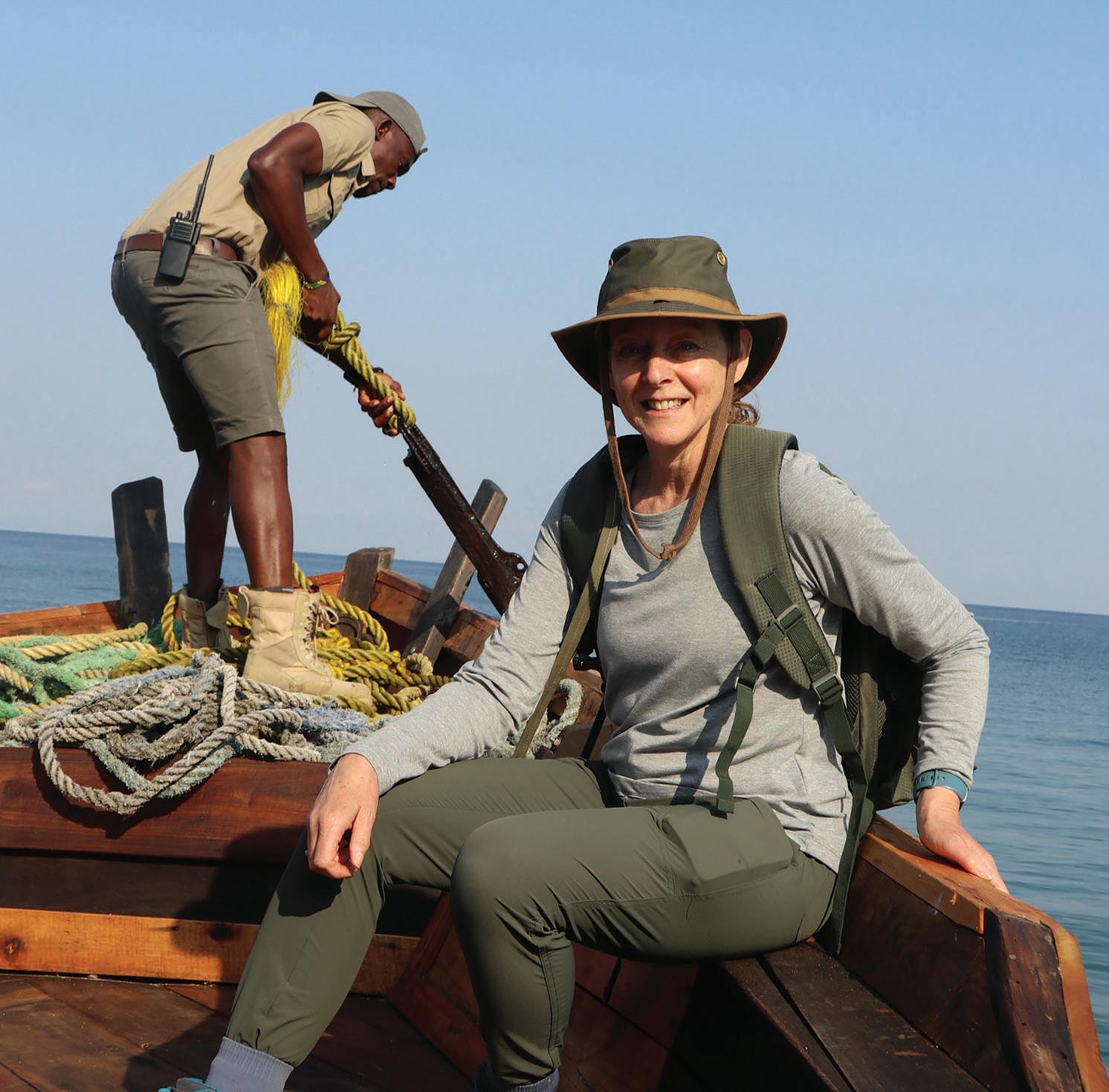
practices, and employment. I visited a mother and baby clinic where children are now vaccinated and weighed in the village, a far cry from the previous all-day trek to a distant district hospital.
That kind of change saves time, improves outcomes, and reduces the health inequalities that often go unseen in climate conversations.
After a few days in the field, I took a tiny bush plane north to Lake Tanganyika. From there, a steep 2.5-hour hike led me into the rainforest, where I had the rare privilege of observing wild chimpanzees. For an hour, we watched each other. They foraged, played, fought and occasionally stared back. Thanks to the conservation work funded by this project, this fragile group is now growing after years of decline.
These are the moments that put everything into perspective. Yes, offsetting must be done with rigour, transparency and accountability. But when done right, as it is here, it becomes far more than a climate metric. It’s an investment in people, biodiversity, and long-term resilience.
Awareness and education have empowered these communities to protect and benefit from their environment. The forest feeds itself, and them. And while I was sad to leave the people (and chimps) behind, I’ll admit sleeping without a mosquito net and not sharing a toilet seat with a spider did feel like a luxury.
It’s experiences like this that remind me that meaningful sustainability in business travel doesn’t happen from behind a desk. atpi.com
FACTS & FIGURES
The latest edition of the GBTA Business Travel Index (BTI) Outlook –Annual Global Report and Forecast predicts 6.6% growth in business travel spend to a record high of $1.57 trillion in 2025, a moderate year-over-year growth rate.
Navan's Business Travel Index showed transactions for personal meals rose by 10%, compared to a decline of 0.1% for team events, suggesting companies may be moving travel budgets from larger internal gatherings towards more targeted meetings.
International premium class travel (Business and First Class) grew by 11.8% last year, outpacing growth in global economy travel of 11.5%. IATA figures showed the total number of international premium travellers in 2024 was 116.9 million. 11.8% 6.6% 10%
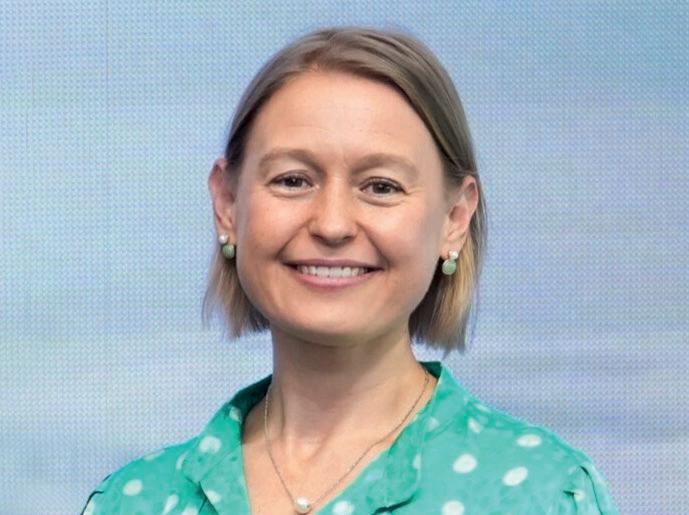
Travalyst CEO Sally Davey will step down in December 2025 after five years leading the notfor-profit sustainable travel initiative set up by the Duke of Sussex. An internal and external search is now underway for a replacement.
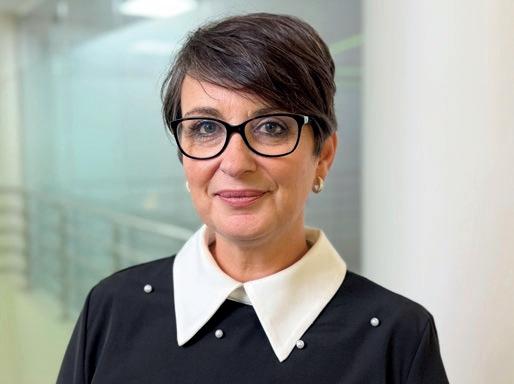
Wings Global Travel has appointed Lorna Thompson as Head of Account Management Europe. She joins from Reed & Mackay in Aberdeen where she was Global Partnerships Manager. She is also an ITM regional associate.

Corporate Travel Management (CTM) has appointed Rebecca Welsch to the new role of Global Head of Growth Marketing. She has over 16 years of experience, most recently leading global product marketing at Phocas Software.

Katie Virtue has left Festive Road after six years to join temoji, the supplier-focussed consulting business. Virtue, who is based in the US, will also be expanding her speaking workshop and coaching business.

Maris Kuklis, formerly Senior Sales Manager Leisure, TMC and Corporate for JetBlue, has joined Air Partner (a Wheels Up company) as Business Development Manager. He has also previously worked for Etihad Airways.
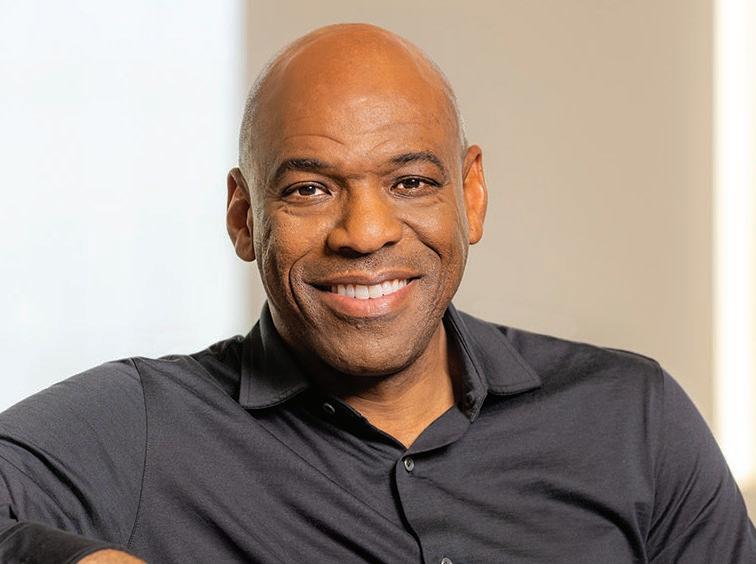
Navan has recruited Anré Williams to its Board of Directors. Williams most recently served as Chief Executive Officer of American Express National Bank and Group President of Enterprise Services at American Express.
ALSO ON THE MOVE... >> Retailaer, the airline retailing and distribution platform, has appointed Ashley Raiteri as Interim Chief Technology Officer >> Accor has named Ranju Alex as CEO for South Asia, covering India, Bangladesh, Pakistan, and Sri Lanka >> Rosewood Hotel Group has appointed Jenni Benzaquen as Senior Vice President of Residential, Global >> Global Hotel Alliance (GHA), an alliance of independent hotel brands, has announced three appointments to strengthen its leadership team. Katharina Dein has been promoted to Vice President Commercial, Jelena Kezika becomes VP Strategy and Andrea Krenn takes on a new Senior VP Communications role >> Tom Maynard, Director of Global Corporate Sales for Virgin Atlantic, has left the airline after just over four years >>

They might not have the biggest travel spends but SMEs are still catching the attention of suppliers, says Gill Upton
What they lack in size they make up for with their flexibility, quick decision-making, simple travel policies and processes, need for minimal account management and potential for growth.
It's no wonder that working with SMEs has considerable commercial appeal for travel managerment companies. “Often operating to a flatter structure with less head count allows relationships to be formed and the ability to adapt to changes without layers of red tape,” says Leanne Fowler, Director of Account Management at Clarity.
Having a mix of clients, rather than depending on bigger, high-value firms, also mitigates risk as losing a large-spend enterprise would leave a sizeable hole in the bottom line. “SME business is considerably lower risk, especially as all conceivable customer segments and verticals can be targeted, reducing volatility,” says ITM CEO Scott Davies. Onboarding is quicker as there are no lengthy procurement processes or rate negotiations and they can be targeted directly by suppliers.
Loyalty is another attractive characteristic,

so too their ethos, adds Cassie Petrie, MD of SMB EMEA at SAP Concur.
“SMEs are innovative and have big ideas. They’re looking to expand or make a difference in their industry," she says.
The lure of the SME also extends to increased profitability as they can generate higher margins than enterprise clients, explains ITM’s Davies. “The key reason is the high discounts that high-volume accounts are able to negotiate in return for committing their support. Due to the large number of SME clients that suppliers transact with, touch points must be
▶
Regardless of their size and spend, SMEs have leverage... preferential rates, flexible terms and a dedicated contact to manage your account should all be on the table”

▶
minimal so account management and other engagement costs are light."
In short, what’s not to like? It’s no wonder that TMCs and suppliers woo this sector with a range of benefits such as easy booking, discounts, simple account management, loyalty schemes and scalable solutions.
That hasn’t always been the case, but John Stephenson, Managing Director at Your Travel Corporate, has seen suppliers moving beyond the one-size-fits-all travel solutions.
“We have seen suppliers offer better oneon-one support for fare and rate loading as well as offering higher level advice on how

to use their offerings, the likes of which were rarely offered before.”
What's in a name?
But who are SMEs? Establishing a definition of these lucrative buyers is challenging since it varies greatly depending on which part of the business travel triangle you ask.
Frasers Hospitality has seen growth in particular markets: “SMEs are a fastgrowing segment of the global business economy – particularly in sectors like finance, tech and creative industries,” says Rebecca Hollants Van Loocke, COO EMEA.
“In the travel management world, the definition of an SME is often fluid,” adds Inntel CEO Douglas O’Neill. “For some TMCs and suppliers, it’s based on spend –typically anything under £5m might be classed as SME. For others, depending on the size of your own business, an SME may have an annual travel budget below £1m or even under £500,000," he says.
In the mid-size TMC sector, an SME is defined by a travel spend of £100,000 to £3m at Blue Cube Travel, but at Clarity it’s any travel spend under £1m, while at Take2Eton Group the annual SME spend range is £150,000 to £1m.
The same disparity in definition is found within suppliers. Lufthansa classes SMEs as those companies with a corporate revenue
in tickets spent with an annual volume of less than €50,000 a year. South Western Railway says it's those with an overall travel spend of under £2m. At Virgin Atlantic, SMEs can start earning loyalty points with as little as a £5,000 annual spend.
Premier Inn doesn’t classify SMEs by spend but by dynamics, explains Tim Sleep, Sales and Distribution Director and Head of B2B. “[SMEs] have certain common attributes, such as price sensitivity and being time poor. They can range from a one-person company up to 30 people or more and we are continually challenging ourselves to stay relevant and offer value.”
Regardless of their size and spend, SMEs have leverage. Frasers’ Hollants Van Loocke advises “not to underestimate the value of your business, even if your travel volumes are modest. It’s always worth having a conversation, even without a formal programme in place”.
Preferential rates, flexible terms and a dedicated contact to manage your account should all be on the table. Technology has also evened the playing field and tech solutions can grow with the company. What is key is to “share data and establish travel policies that are set in concrete,” advises Joe Thurgood, Business Sales Manager, South Western Railway.
Rather than dealing direct with suppliers,
improve clout around the negotiating table by gaining access to volume-based deals and discounts when individual spends are grouped together by a TMC. “More importantly, a TMC can negotiate valueadds, such as hotel rates that include breakfast, parking, early/late check-in, and wouldn’t be tied into big deals that do not add value,” says Shelley Matthews, Chief Commercial Officer, Take2Eton Group.
Premier Inn’s Sleep advises booking in advance and avoiding the busiest business days of Tuesday and Wednesdays to gain a better deal. “Booking a Sunday or Monday night can make a significant difference on the rate. We always encourage our business travellers to treat Monday as the new Tuesday if they want to benefit from even better value.”
Rather than consolidating all your travel with one TMC, consider fractional travel management if your VIP/C-suite travellers
have more complex/more white glove travel requirements to other travellers.
“We work with a number of accounts that use our VIP service for their C-suite, while using a large TMC or online TMC for the rest of their workforce, who usually have more straightforward travel requirements,” says Take2Eton Group’s Matthews.
Travel Counsellors advocates the same strategy. ”Global travel managers increasingly recognise that one size does not fit all,” says Melanie Quinn, Director of Corporate Travel. “While high-volume, transactional travel may often be managed in-house or via online booking tools such as our self-booking tool, myTC Online, executive travel calls for something highly bespoke, with an approach that’s agile, discrete, personal and care-led.
“In many cases, companies are now procuring specialist support for senior-level travel in the same way they might separate out meetings and events from the core programme. These engagements allow us to

step in as an extension of the in-house team, delivering high-touch service where it matters. Through this tailored approach we build trust, demonstrate value and often form the foundations for a longer-term partnership as the client’s needs evolve.”
The need for cost control, sustainability reporting and duty of care is driving another trend, to move from unmanaged to managed travel. Surprisingly, not all are small accounts. Take2Eton cites the example of a reinsurance client with an unmanaged account worth over £2m.
The good news is that today, the business
Due to the large number of SME clients that suppliers transact with, touch points must be minimal, so account management and other engagement costs are light”





travel market provides bespoke SME support because it makes good commercial and strategic sense. “Suppliers that get this right are embedding themselves in the DNA of tomorrow’s midmarket giants,” says Stephenson of Your Travel Corporate. Read on for how suppliers are targeting SMEs.
Etihad doesn’t offer a specific corporate travel programme for SMEs but they are targeted in the airline’s new digital portal, Etihad for Business. Buyers can track performance data in real-time, handle benefit redemptions and access their complete corporate travel management suite through a single digital platform. Key features include automated performance reports, transparent tiering requirements, streamlined contract management. Corporate customers can now access contract details, monitor travel spend and redeem Etihad for Business credits for a comprehensive suite of travel benefits.
Accounting for 55% of its customer base, Virgin has a big push on SMEs. A dedicated sales team supports the sector, including social selling on LinkedIn, and promotes its Blubiz loyalty programme where travellers
can earn and burn across four airlines (Air France/KLM/Delta and Virgin,) on a minimum of a £5,000 annual spend. Perks include dedicated check-in, wireless charging on board, and invites to key events.
Lufthansa
The German airline defines SME as spending under £50,000pa. Typically they are enrolled in the free, self-service PartnerPlusBenefit (PPB) loyalty programme which allows travellers to earn points on flights and redeem for free flights, upgrades and other benefits. SMEs can also utilise BusinessToGo (BTG), a direct booking platform introduced in collaboration with Navan to direct book, collect and redeem PPB points, insert policy and manage bookings.
SMEs account for 50% of clients in the EMEA region and they can join the Business Travel Programme with a minimum of 50 room nights a year, per property in return for discounts, flexible cancellation policies (up to 48 hours before check-in), a central booking portal for easy reservation management, free Wi-Fi and loyalty rewards through Fraser World programme. “Where larger clients may require bespoke rate agreements and multi-property contracts,
SMEs bring agility, diversity, and innovation as they’re often early adopters of technology and highly engaged in improving efficiency”
our SME offering is designed to remove complexity,” says Rebecca Hollants Van Loocke, COO EMEA. “It gives smaller companies live self-serve access to highquality serviced accommodation and corporate travel perks without the pressure of large-scale commitments.”
Hilton for Business is an SME-specific programme offering a booking platform, portfolio-wide discounts across its global portfolio of nearly 7,400 properties and accessed on the website and Hilton Honors app, loyalty rewards from Hilton Honors, and programme management tools to track upcoming spend, review historical spend and understand the benefits accumulating as they travel. “It meets their unique set of needs and reduces friction points, from booking to billing,” says Chris Silcock, President, Global Brands and Commercial Services.
SMEs account for more than half the total B2B revenue, over £500m, and are “really significant and critically important to us,” says Tim Sleep, Sales and Distribution Director and Head of B2B. That gives SMEs access to a free business platform, which gives 5-15% discounts on bookings across every night of the week to the chain's 850, three-star hotels, a six-week credit limit and various reporting modules including leakage and cancellations.
SMEs are categorised as those with overall travel spend of under £2m and account for 30% of SW Railway's client portfolio. SMEs can take advantage of its rail booking tool Business Direct which allows users to book tickets on any train operating company on the network and track bookings (reason for travel, customer name). It is supported by a dedicated team and claims an average of 24hrs for refunds. ”We make the difference
when it counts,” says Joe Thurgood, Business Sales Manager. “We like SMEs. They are flexible and open.”
SMEs are those with a rail spend of under £500,000. Knowing that they prioritise ease of use, cost efficiency and flexibility in their travel solutions, Trainline offers Trainline Business, an intuitive self-service tool with scalable features, allowing effective travel management control without the overhead or complexity of enterprise systems. It includes travel policy settings to promote savings, sustainability reporting and traveller profile management. “SMEs bring agility, diversity, and innovation to our client base as they’re often early adopters of technology and highly engaged in improving efficiency,” says Sophie Fleming, Global Head of Trainline Business.
Holiday Extras for Business
This new sub brand of airport ancillary
provider Holiday Extras provides a onestop-shop to fill the gaps around core travel products, including parking, lounges, Fast Track and transfers. It is also trialling currency exchange. Booking is via the TMC and OTA networks. ”It’s currently either payas-you-go or book on account on a portal but we’re looking at a tech integration in 12 months’ time,” says Kayleigh Dawkins, Partnership Development Manager. She wants these ancillaries to be part of a travel policy rather than expense policy where it’s “out of sight, out of mind”.
Two-thirds of the company’s customer base is SMEs and its “universal offering” of Concur Expense and Concur Travel can be used in a simple, user-friendly way. It provides an app for employees and ensures cost control and visibility for the employer. “The great thing about our universal offering is that you can add pieces of SAP
Concur into the app to suit your needs,” says Cassie Petrie, Managing Director of SMB EMEA. “If an SME travels a lot, you might switch on Concur Travel or TripLink. If compliance matters, you might switch on the audit function. The platform can grow with the SME.“
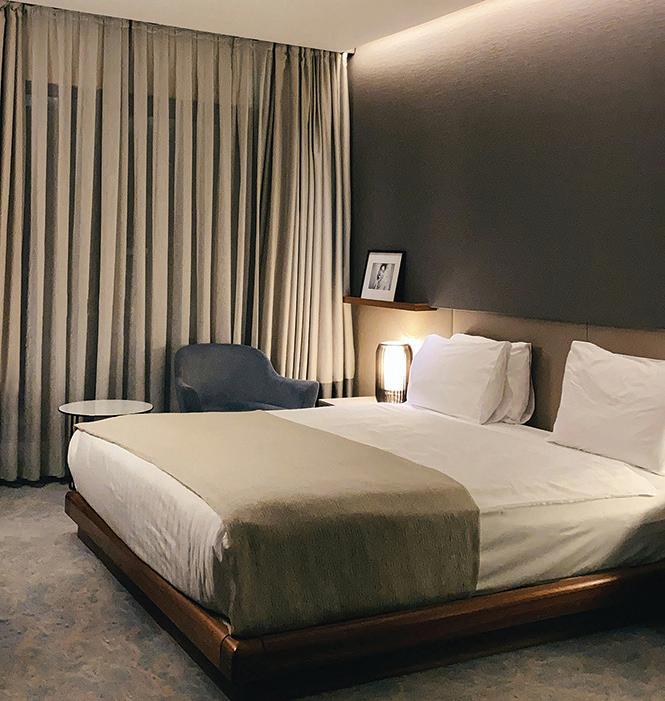































































Keeping travellers within policy is not always easy. But whatever the size of your travel spend, there are ways to improve compliance, says Nick Easen
Driving compliance is not a science, it’s an art, because at its very heart it involves influencing human behaviour.
In theory, improving compliance to travel policy should be easier for small to medium enterprises (SMEs). Decision can be made quickly, firms are agile, policies are simpler and there are fewer approval layers.
“SMEs may not have the same infrastructure as big firms, but they do have proximity. Smaller teams mean communication is easier,” explains Vicky Lerego-Wright, Project Manager at Festive Road.
Yet SMEs don’t always have advanced digital platforms and rich data insights with built-in compliance features, not to mention dedicated travel teams and strong supplier partnerships, which are more typical of large enterprises.
Rather than size, success is often down to other factors.
“How easy it is to stay compliant depends on how well each company plays to its own strengths,” states Ann Thomas, Senior Account Manager at Clarity Business Travel.
What is crucial in this process is how people behave. Businesses that are all about

employee autonomy and independence are less likely to stick to the rules.
“Traveller compliance depends more on company culture than size,” explains Kerry Douglas, Head of Programme at the Institute of Travel Management (ITM).
In a poll by ITM, 95% of travel buyers said the most effective lever in supporting compliance was leadership endorsement. If the big guys comply so does everyone else.
So the C-Suite is a good place to start.
“We host an annual webinar in which senior leadership share their thoughts on business objectives and how this relates to policy compliance. This resonates well with the wider business,” says one travel buyer.
The next question is whether to nudge or mandate. “In the SME space, a gentle nudging approach works best at first,” explains Lorraine Sergison, Account Manager at Gray Dawes Group.
But reminders, educating your travellers and presenting them with data can only go so far. It may ensure a low-friction environment, talent retention and happy executives, but buyers must know when to be stricter.
“Mandating policies, with clear consequences for non-compliance, ensures policy is taken seriously. This can drive immediate compliance,” says Carrie McCabe, Vice President, Enterprise Customers at CWT.
It certainly depends on the industry. Highly regulated and high-risk sectors, where duty of care matters, are more inclined to do things by the rules. Here audits and accountability are high, yet this limits traveller autonomy.
Many businesses use a combination of
both, mandating essentials such as booking channels, while deploying nudges to encourage the use of preferred suppliers and good booking behaviours. Setting expectations is important, since it allows travellers to benchmark their behaviour.
“There’s this saying that ‘the standards that you walk by are the new standards that you set’. So, if you let somebody fly First Class once, they probably think they can do it all the time,” points out Cassie Petrie, Managing Director of EMEA at SAP Concur.

“Regardless of a company’s size, it all needs to be written down so people know what they’re entitled to, so they’re empowered to make their own decisions, while adhering to the guidelines.”
One of the biggest compliance challenges is leakage, whether it is incidental expenses at hotels or inflated car hire upgrades with extras paid for on collection. Education is crucial here, and so is visibility.

1 Lead from the top: Senior leadership needs to grasp the compliance nettle. If bosses stay in line then staff are more likely to follow policy.

2 Company culture: Buy-in is essential. Make sure new starters are introduced to the policy right away. The aim is to create a travel policy that all travellers want to follow.

3 A policy fit for purpose: Forget rigid rules. Compliance depends on a flexible policy. Rules should adapt over time as travel patterns change, and be aligned to broader corporate goals.

4 Make it easy: Most travellers aren’t trying to bypass rules, but they do need clear and simple guidance. If it’s easy to understand, they won’t go rogue.

5 Communication is key: Be clear and transparent when setting out rules. “Outlining the ‘why’ can pay dividends in terms of building understanding and adherence,” suggests Ryan Jackson, Quality Assurance Manager at SilverDoor.

6 Education, education, education: Real life examples work. These can be more memorable than hard rules. It helps travellers understand the meaning of a policy.

7 Explain out-of-policy risks: Setting out the pitfalls involved in rogue bookings is one approach used, whether it is duty of care or saving the firm money.

8 Use an approval process: A popular approach and highly effective, this also drives the right behaviour since it gives managers visibility so they can track budgets.

9 Nudge first, mandate later: Get the balance right. Even strict mandates experience policy leakage. Balance cost controls with duty of care.

10 Create a living, breathing policy: Whether it is refreshing people’s mindset or sparking internal discussion, compliance is dependent on an active, not a passive state, within the firm.
This is where good data and reporting comes in via a travel management company. “Many SMEs don’t have the systems or bandwidth to track noncompliant bookings until they hit the expense report. By then, the damage is done,” says John Stephenson, Managing Director at Your Travel Corporate.
Then there are issues with available rates. We’re all travel buyers these days, so when executives find public prices cheaper than negotiated rates via a TMC, compliance issues kick in.
“Changes in how airlines and suppliers distribute available inventory mean fare discrepancies are often now found in the booking experience. The way to address this challenge is to ensure you can have breadth of content available and have the mechanism to deliver this content directly to the end user,” says Sandra Green, Strategic Client Solutions Director at Take2Eton Group.
With all of these challenges, communication is perhaps the most important of any travel policy. Travel bookers now need to be good storytellers. There will always be travellers who will try to game the system, and persuading them not to is crucial.
“There should be a plan for how travel policies are introduced during onboarding and reinforced during role changes. Travellers need to understand not just what the rules are, but why they exist and how they protect both the employee and the business,” explains Stuart Birkin, General Manager for London and Glasgow at CTM.
“Travellers often believe they’re saving the company money, not breaking policy,” adds ITM’s Kerry Douglas.
Artificial Intelligence (AI) now has the potential to shift the compliance goalposts. “I’m now using AI within an expense tool,
which sits on top of my online booking tool,” explains one travel buyer.
In this business case, generative AI reads the travel policy, scans expense submissions to identify leakage, and then issues an outof-policy spending alert to employees. This approach has already generated savings for the firm and nudged travellers to be more responsible, therefore driving compliance. Agentic-style AI has more potential, where it can act and deliver on command.
“Currently, there’s limited evidence of success, and many clients remain cautious. That said, it holds strong potential for the future,” explains Angela Gallacher, Account Manager at Gray Dawes Group.

What also holds a lot of promise, especially for SMEs, is bringing travel policies to life. Many agree it should be a living, breathing document. The best managers get it. In an ideal world your travel policy must be flexible, reflect current business needs and empower travellers, as well as holding them to account.
“For us, the main factor is engagement. When travellers understand and are engaged with the policy, compliance naturally improves,” explains Katie Skitterall, Group Commercial Director, Direct ATPI.
“It is so important.” •
There will always be travellers who try to game the system, and persuading them not to is crucial”
David Seed, Head of Product at Lokulus, outlines how AI customer service platforms can help TMCs meet the rising expectations of today’s travellers
Travellers want instant responses across multiple channels — how can TMCs realistically deliver that?
Shared inboxes were a step forward for email but they’re not built for the way travellers communicate today. People now message via WhatsApp, webchat, SMS, social platforms and phone, expecting the same quick, high-quality reply. Without the right tools, channels stay siloed, urgent cases get missed and service speed suffers. Platforms like Lokulus bring all channels together, prioritise urgent cases, and route them to the right person — so nothing important slips by.
How do you make sure urgent issues aren’t missed?
In a multi-channel world, a cancellation or missed connection can be buried among routine requests. Technology that detects high-priority cases and pushes them to the top of the queue ensures they’re resolved before they escalate.
Travellers expect personal service — can an AI platform really deliver that?
Yes. Lokulus can build a complete traveller profile in seconds, presenting agents with booking history, prior

commitments and preferences instantly. Agents can respond in a way that feels informed and personal without wasting time hunting for details.
How do managers keep control when messages come from everywhere?
The technology automatically manages workloads and reassigns cases across the organisation. Lokulus also provides operations teams with real-time insights into volumes, bottlenecks and channel activity, so performance and service quality are maintained without manually tracking tasks.
What about being proactive, not just reactive?
Lokulus monitors GDS queues and alerts automatically, spotting potential issues before they affect travellers. It can send updated flight times or rebooked details ahead of a disruption.
And the balance between AI and human service?
The platform handles repetitive admin and triage so agents can focus on service and problemsolving. It’s not about replacing people — it’s about giving them the space to deliver the human touches and expertise that make the difference. lokulus.com


Managing your travellers’ F&B spend can be arduous and time consuming but technology is making it easier, says Nick Easen
Food and beverage spend when totted up can be a significant expense, particularly with escalating prices fuelled by inflation. The frequency and volume of purchases, especially for longer trips, can lead to spiralling costs, policy violations and potentially fraud. However, it is often left unmanaged.
“F&B spend is a blind spot for a lot of businesses, particularly in smaller to medium sized businesses or SMEs,” explains John Stephenson, Managing Director of Your Travel Corporate.
It's hard to gauge the scale of the issue, since so-called F&B costs are often lumped in as incidentals. What’s spent is often dealt with post trip and involves sifting through hundreds of receipts to understand whether a meal was in policy. This can be time consuming. Yet, the challenge doesn’t just
involve the occasional overpriced lunch, but the myriad of unnoticed expenses slipping through the auditing system.
Today most companies have some form of F&B policy, yet smaller firms don’t tend to include much detail. “We have daily meal allowances or per diems, we also have set spend limits on meal type,” explains Charlie Gillmore, CEO of Gillmore British Design, an SME furniture company. However, these can sometimes be seen as a ‘use it or lose it’ entitlement rather than an allowance.
As Gillmore points out, it’s easier to manage costs when breakfast is included in hotel deals or room rates, since some properties give a discount at the on-site restaurant for guests. Unfortunately, even when deals are in place, they can be overlooked due to poor communication — either from the hotel side or internally.
“Where a travel manager has ▶
Set a policy
Having a policy helps keep it simple and fair. You don’t want a situation where one employee is regularly splashing out on three-course dinners while another sticks to a meal deal. Make sure the policy also outlines the rules relating to spending on alcoholic beverages and snacks between meals.
Make it flexible

Rules and spending limits should vary depending on the destination (make it more generous for New York than Bangkok) and the trip duration. You might also want to set different rules for the type of trip and the employee’s position in the company, but be clear and transparent about the reasons for this to encourage buy-in.
Break it down
Some companies prefer to set a daily allowance, where employees are given a fixed amount to cover their meals for each day, but you might want to set individual limits for breakfast, lunch and dinner, and even have different allowances if your travellers are entertaining clients.
Make sure the allowance policy is communicated to all new employees and is easily accessible to all of your travellers. Consider sharing it on the company’s intranet and send email or Teams reminders.



Per diem payments, where employees receive a set daily amount to spend on F&B, keeps things simple but it might lead to a 'use it or lose it' attitude. Many policies require employees to pay for meals out of pocket and then submit receipts for reimbursement. This allows more flexibility but involves more administrative work to process claims. It’s important travellers understand the reimbursement process, what documentation and information is required (such as the date and location of the meal), and the timeline for claims.
As long as the policy is clear, giving your travellers corporate credit cards can give you more control over spending, as you can monitor transactions in real time and the employee is not left out of pocket while claims are being processed.


negotiated a discount there are now tools that allow this information to be loaded and pushed to the traveller at the right time. This is crucial as otherwise the soft pound benefits may sit in a static intranet page and travellers will be completely unaware,” states Kerry Douglas, Head of Programme at the Institute of Travel Management (ITM).
Some of the biggest issues are knowing who’s responsible and having transparency on what’s spent. Often this goes beyond the travel buyer, where finance teams and individual department heads are involved. Data is fragmented and responsibilities diluted. It’s why travel tech firms and TMCs are leveraging data analytics to help monitor F&B spend more effectively.
“Having the data available allows companies to spot patterns, keep costs under control and make sure travel policy is working,” states Ann Thomas, Senior Account Manager at Clarity Business Travel.
With the right data corporates can also see if they have enough volume of trade in a certain city with a particular hotel chain. This can then allow better negotiated rates where F&B is included. “If you have the right data, you can also see if the amount being spent is giving enough return on investment, or whether certain divisions or individuals are taking advantage of the policy,” says Paul Dear, Vice President for EMEA Concur Travel, SAP Concur. He adds: “Travel and expense management tools also help since they can clearly show travellers what’s on offer and what is on policy, from the initial point-ofsale through to the trip itself.”
Currently, many businesses approach F&B tracking passively. Yet a proactive, multifaceted auditing approach, which goes beyond basic transactional checks, can help.
For instance, AI specialist PredictX has a product that can detect and prevent noncompliance before it occurs, whether it’s identifying alcohol purchases that exceed policy limits, suspicious tip activity, or scrutinising meal claims out of working hours.
“Tracking expense data with this level of detail isn't optional, it’s essential for financial control, risk mitigation and maintaining a robust expense culture,” details Ian Patmore, Vice President, Product at PredictX.
Buyers are using their own AI to actively

monitor costs, instructing the gen-AI tool to read the travel policy, drill down on F&B spend and then actively interrogate expense claims to identify where purchases have exceeded the per diem rate or allocated spend. For instance, it can see whether the policy “no minibar, no room service unless pre-approved” has been broken. These incidences are then flagged to finance and the traveller in question.
“Some clients are very focused on actively
monitoring F&B spend. For example, we have clients who will challenge any charges exceeding the agreed allowance,” details Lorraine Sergison, Account Manager at Gray Dawes Group.
Virtual cards can also help manage limits on F&B spend, since amounts can be specified. This allows expenditure to be managed centrally. In some cases the card can be integrated with online booking tools too.
“Companies can preload virtual cards with a set value, helping travellers stay in policy by controlling spend. This also allows businesses to capture spend data at the time of booking rather than relying on post-trip expense reports,” says Katie Skitterall, Group Commercial Director at Direct ATPI.
Having the data available allows companies to spot patterns, keep costs under control and make sure travel policy is working”


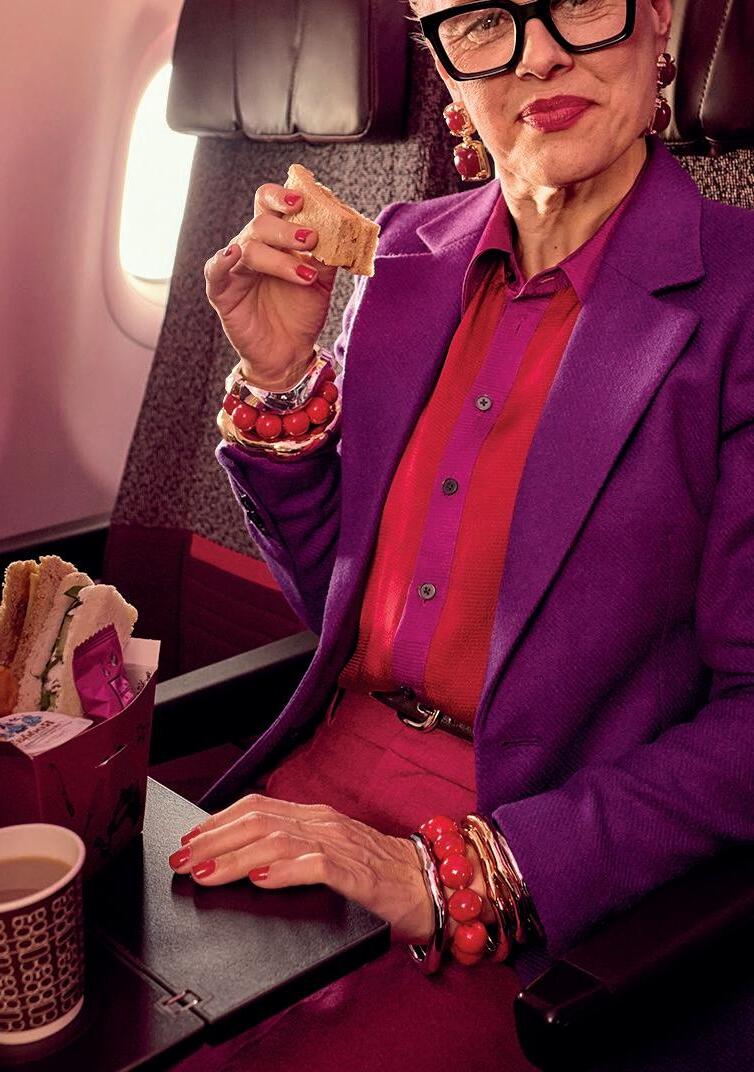
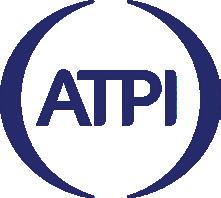
ATPI
atpi.com
sales@atpi.com
Type of platform: TMC Tech Stack
Aimed at: Corporates, SMEs, global enterprise, crew and MICE teams
ATPI is a global leader in travel and event management, simplifying managed travel with tailored, tech-driven solutions across corporate, marine, energy, sports and group travel. From our next-gen platform, Avenir, to CrewHub, EventsHub, TeamsHub, traveller tracking, approval systems, mobile apps, analytics and Microsoft Teams integration, our tech streamlines processes and unlocks greater value from business travel.

ATRIIS atriis.com sales@atriis.com
Type of platform: Corporate travel booking – TMC agent, OBT, mobile
Aimed at: Corporates and TMCs
Atriis is built for the real world of corporate travel. From our TMC roots to a global platform, we give companies and TMCs everything they need - NDC, GDS, rail, hotel, and direct content - in one place. We help you cut costs, boost traveller wellbeing, stay on-policy, and hit sustainability targets. Simple. Powerful.
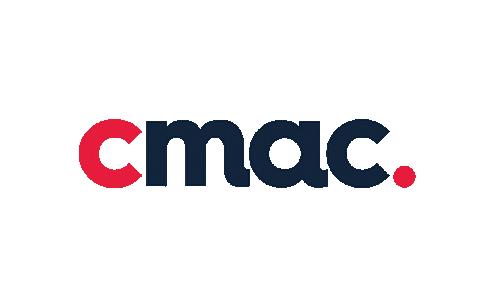
CLARITY
claritybusinesstravel.com
hello@claritybt.com
Type of platform: TMC, OBT, app
Aimed at: Corporates
ClarityGo is a fast, scalable travel hub for flights, rail, hotels and car hire, powered by cloud tech and built to WCAG standards for full accessibility. Unified search and rich content deliver seamless, relevant results. MeetingsPro puts organisers in control with live availability and instant booking for effortless meeting planning.
CMAC
cmacgroup.com hello@cmacgroup.com
Type of platform: Travel booking
Aimed at: Corporates, TMCs and MICE teams
One platform for every journey. CMAC combines over 35 transport integrations into a single solution, available via app, on desktop or via an API connection. CMAC facilitates tech-driven, reliable door-todoor transport, tackling last-minute changes, complex logistics, and fluctuating demand. In 2024 we moved 5 million passengers across 121 countries, combining 24/7 support and real-time tracking with exceptional service.
BLACKLANE blacklane.com/en/business business@blacklane.com
Type of platform: Global booking platform (web and app) Aimed at: Corporates and TMCs
Blacklane delivers premium ground transportation for corporate travellers and agencies worldwide. From airport transfers and long-distance city-to-city rides to quick pickups, hourly bookings, and event services, we make business travel seamless and reliable. With highly vetted chauffeurs, top-of-the-range vehicles, and coverage in 50+ countries, you can count on a consistent, high-quality experience, and every ride is 100% carbon offset.

DOMO domo.com
claudia.lewis@domo.com
Type of platform: AI and Data Platform
Aimed at: TMCs and Corporates
Domo is an end-to-end AI and data platform helping TMCs turn real-time data into action, enabling them to centralise their data from across GDS, OBT and NDC, alongside core back-office systems. Using this data, TMCs can go far beyond reporting by automating key workflows, streamlining operations and reducing manual effort. Users can create dashboards building AI agents to take intelligent action on data that is bespoke to the TMC’s business and client’s needs.

BUSINESSTRAVELESIMS.COM businesstravelesims.com hello@businesstravelesims.com
Type of platform: Roaming data eSims
Aimed at: Businesses of all sizes and TMCs
BusinessTravelESims.com keeps you connected in over 190 countries with instant, hasslefree mobile data - no SIM swaps, no roaming shock. Perfect for frequent travellers, our eSIMs let you choose local or multi-country plans, saving money and time. Activate in minutes and enjoy reliable coverage across multiple networks. Up to 70% savings compared to the UK mobile networks. Save 10% with code LINKED10.
EHOTEL
ehotelag.com
sales@ehotelag.com
Type of platform: All-in-one hotel booking, payment and reconciliation solution
Aimed at: Corporate and supplier
Power your business travel with ehotel – your all-in-one hotel solution. Access more than 2 million accommodations at the best rates, streamline booking, payment, billing, and VAT reconciliation in one platform. Our modular tools optimise workflows, ensure compliance, and cut costs. Recognised by the Financial Times as one of Europe’s Fastest Growing Companies, we help global businesses travel smarter.
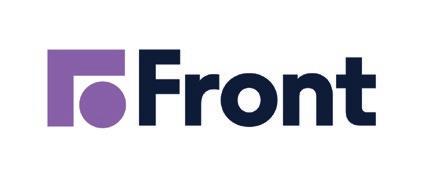
FRONT front.com sales@front.com
Type of platform: AI-powered communication platform
Aimed at: Corporate and supplier
Front is a customer operations platform built for travel and hospitality teams. It unifies emails, chats and more into one easy-to-use inbox, helping teams respond faster and more personally. With automation, assignments and analytics, Front boosts efficiency and delivers the five-star service today’s travellers expect. Trusted by leading travel companies, it’s the modern way to manage guest communication.
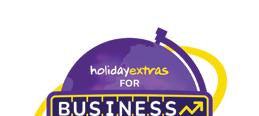
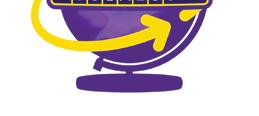
HOLIDAY EXTRAS FOR BUSINESS holidayextras.com/corporate-travel kayleigh.dawkins@holidayextras. com
Type of platform: API for UK, EU, US. Online booking portal Aimed at: Corporates, TMCs and suppliers
Holiday Extras for Business platform lets you book airport parking, hotels, lounges, fast track and transfers in one place, streamlining travel and reducing costs. Advance booking cuts admin and spending while saving your teams time and hassle. Whether it’s an early start or late return, our all in one service makes business travel smoother and more efficient.

LOKULUS
lokulus.com
info@lokulus.com
Type of platform: AI workflow automation for customer service and task management
Aimed at: TMCs
Lokulus, a trailblazer in travel technology, delivers an AI-driven platform for TMCs and travel agents to streamline operations. From email management to multichannel enquiry handling, it integrates with existing systems, automates workflows and bridges front and middle office — unlocking efficiency, actionable insights, SLA control, and revenue per booking.
NOMADIC gonomadic.com nomadicclientsupport@ fragomen.com
Type of platform: Global visa compliance
Aimed at: Corporates and TMCs
Nomadic is a unique tech solution developed by immigration services leader, Fragomen, to streamline global business travel and short-term travel visa processes. Merging industryleading legal advice and digital workflow, the intuitive platform provides end-to-end assessment and delivery technology to ensure compliance with global regulatory requirements, including immigration, social security and tax.



HOTELHUB hotelhub.com sales@hotelhub.com
Type of platform: End-to-end hotel booking solution Aimed at: TMCs
HotelHub’s mission is to help TMCs increase hotel attachment and generate more revenue. Empowering our global partners to own and optimise their commercial relationships, HotelHub’s agnostic booking tech delivers consolidated, multisource hotel content seamlessly into any point of sale, including new Concur Travel. Also offering integrated, automated rate re-shopping, HotelHub unlocks efficiency, data visibility and profitability for TMCs.

PIONEERA pioneera-ai.com info@pioneera-ai.com
Type of platform: GenAI-powered travel optimisation
Aimed at: Corporate and supplier
Pioneera is a generative AI-powered optimisation engine for enterprise travel. Purpose built to help corporate programmes reach their goals, Pioneera uses AI agents and multi-channel nudging to guide travellers toward better travel choices – balancing cost, compliance, sustainability and engagement. Fully agnostic, it layers seamlessly into existing travel programmes.
LIMOS4 limos4.com
sales@limos4.com
Type of platform: Chauffeured service, API
Aimed at: Corporates, TMCs, event planners, PAs and EAs
Limos4 sets the gold standard in chauffeured ground transport, serving 200+ cities with tailored corporate, executive and event travel. Powered by its proprietary system and API, clients enjoy fast self-service booking, live ride updates, custom preferences, centralised billing and CO2 reporting, backed by an in-house IT team. With AI and expert human oversight, service meets the highest standards of safety, punctuality, and compliance.

SAP CONCUR concur.co.uk
UK Sales: +44 (0) 208 917 6659
Type of platform: Integrated travel and expense platform, OBT. Aimed at: Corporates
Concur Travel offers unmatched scalability and GDS/NDC content, global compliance, security, connected expense data flows and plug-and-play innovations – in 170+ countries, over 30 languages and multiple currencies. We provide our leading platform and intuitive experience. You choose your travel partners from 400 TMCs, 900+ T&E partners and 300+ App Center apps to attain programme goals and retain the freedom to adapt fast when business changes.
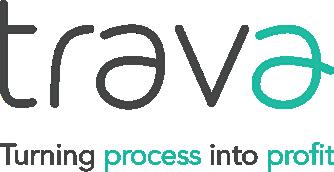
TRAVA trava.co
info@trava.co
Type of platform: Process and profit automation
Aimed at: Travel agencies
Transform post-booking flight operations into an automation and profit engine. Automate advanced ticketing, schedule changes, refunds, queues, quality management – and even customer interaction. Use a powerful drag-and-drop tool to design processes and achieve automation rates of 70-90% or even more. Boost profits with unused ticket management and automated fare optimisation. Simple implementation, intuitive process-building. Contact us for an intro.

TRIPISM tripism.io sales@tripism.io
Type of platform: Intelligent, Cloud-based SaaS platform Aimed at: Corporates, Suppliers and TMCs
Engage your travellers, elevate your programme. Tripism is the intelligent, cloud-based platform trusted by leading companies to connect with their travellers. Bringing all corporate travel information into one place –policies, suppliers, reviews and employee feedback – it delivers dynamic updates, actionable insights and streamlined supplier management to power smarter, more engaging travel programmes.

TRIPSTAX tripstax.com info@tripstax.com
Type of platform: Modular tech and centralised data processing Aimed at: TMCs and corporates
TripStax is an award-winning, fully-connected modular tech stack powered by The TripStax Core – an innovative centralised data processing engine that consumes, normalises and enriches booking, profile and finance data across the entire ecosystem, no matter the source or format. Connect third party tech or plug in any of the 10 cutting-edge tech modules from Analytics, Content, Docs, QC and Profile to Approve, Track, Mobile, Hotels and Portal.
VIRGIN ATLANTIC FLIGHTSTORE FOR BUSINESS vafsforbusiness.com sales@vafsforbusiness.com
Type of platform: Online flights booking system
Aimed at: TMCs
Virgin Atlantic Flightstore for business act as an extension of Virgin Atlantic, and we offer the best fare distribution to travel management companies. We are operated by one of the UK's best-known consolidators, so you can take advantage of our vast industry experience. Virgin Atlantic Flightstore for business offers a seamless booking process, tailored fare options to suit your clients’ specific travel needs, and expert 24/7 support.


Wednesday October 19, 2025 The Caledonian Club, London
Corporate buyers can register their interest to attend by emailing: Neil.Dargie@bmipublishing.co.uk
For sponsorship options email Kirsty.Hicks@bmipublishing.co.uk


Kindly sponsored by SAP Concur, Direct ATPI and Atriis.


ZOHO EXPENSE zoho.com/expense marketing@zohoexpense.com
Type of platform: Travel and expense software
Aimed at: Corporates
Zoho Expense is a leading business travel and employee expense management software from Zoho. With features including expense management, travel desk management, employee self-booking, corporate card management, reimbursements and more, Zoho Expense helps companies gain control over business travel and employee expense management.



























We talk to Jason Dunderdale, Global Director of Sales at Blacklane, the global chauffeur service, about how the company works with SMEs and how it is responding to some of the key trends in this dynamic sector
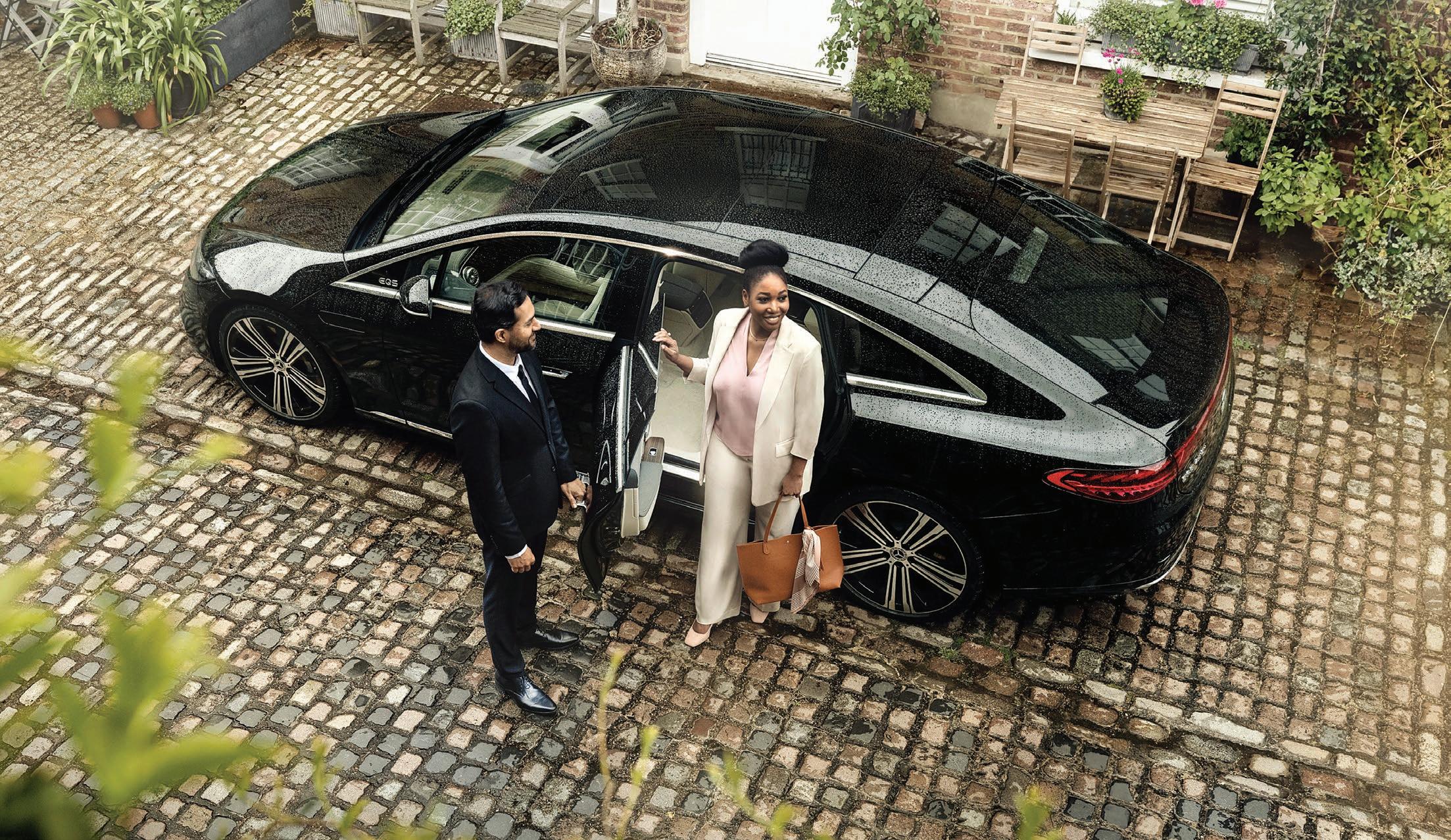

How do SMEs use a service like Blacklane?
In every way possible! There is certainly no one size fits all when it comes to Blacklane’s SME accounts. We have those who use our services globally 24/7 in many of the 50 countries in which we operate, and those who simply look for a chauffeur partner in one city for reliable airport transfers. How and when they book is also really diverse. Some SME clients book months in advance using third-party booking tool integrations, and others book 15 minutes before they need a chauffeur
service using our app and the faster-pick ups option in cities like London, Dubai, Miami, New York and now Riyadh.
What’s different about your SME clients compared to other large corporate accounts?
Firstly, they don’t tend to have an in-house travel manager. However, when it comes to larger SMEs their use of TMCs is generally quite high as they recognise the ROI of a professional partner to help plan and manage their travel spend. This means travel sits in all manner of business departments and sometimes with a
business owner or founder themselves. There are some interesting trends when it comes to travel and in particular we see that SMEs are early adopters of new services and locations. They tend to want to have a really trusted partner on-board as they explore a new market. So they might be starting to export to a certain country, or are establishing a partnership somewhere new and they don’t yet have any boots on the ground in that particular city. They look to Blacklane for our global consistency and reliability as they spend more time in a new region. Conversely, it is more commonplace that
larger corporates get things up and running in terms of a new office or operation before they tender for external suppliers.
Do you offer any specific support for SMEs?
Blacklane has a dedicated SME account management team, which is supported by our customer care department, which operates 24/7 and across multiple languages. This is invaluable to our SME clients who really need to know that their ground transport partner cares and has people at the end of a telephone or in-app chat service regardless of time zone.
Every account, regardless of its scale, has an account manager who can provide trend reporting on spend, kilometres travelled, carbon emissions and more. These reports are invaluable to SMEs who simply might not have the resources to analyse data in-house, especially when they do not have a dedicated travel manager.
What’s new for your SME clients?
How SMEs book is also really interesting. Of course, it is not a hard and fast rule, but we notice less usage of external booking tools such as Groundspan or Concur, and more use of our app and website directly. It’s important that we always improve our own technology platforms with new features, such as ‘booking a ride for someone else’ in-app, so whoever may be a booker in an
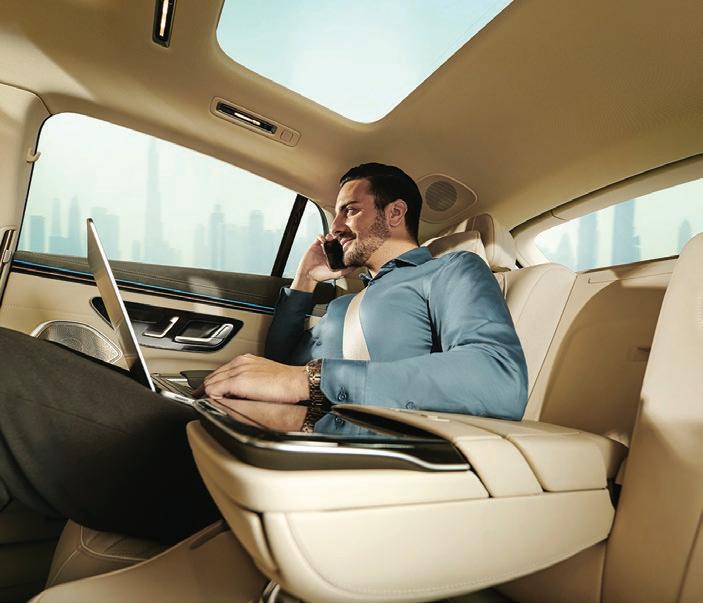
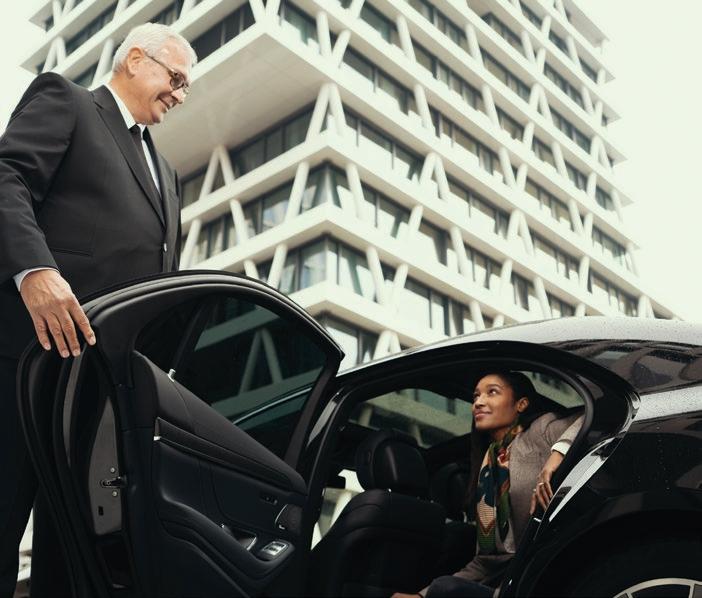
SME can have multiple guests on their profile, all linked to a simple central invoicing process.
We also provide support in terms of how to work with Blacklane and how to book. For example, we have video training guides that give a snapshot overview of everything from how to set up an account to managing sustainability reporting. These ‘how to’ videos are a handy tool, especially when you consider that most of our SME clients have someone handling travel who is not a dedicated travel manager.
What are the most rewarding and most challenging aspects of working with SMEs?
We very much enjoy the entrepreneurial nature of our SMEs partners and certainly

I particularly love the spirit of partnership with our SME clients where we can test new things together and learn from each other”
keep an eye on their travel trends to be one step ahead of emerging markets for this sector of business. I particularly love the spirit of partnership with our SME clients where we can test new things together and learn from each other.
There are challenges to bringing first-class service to a diverse portfolio of SMEs, often because we have to tailor our approaches quite significantly. But this also means that we gain invaluable feedback. For one SME client we may deal directly with a finance director instead of a travel manager who reports into a finance function. This coalface experience can help us think differently. In fact, the access to all kinds of different professions and schools of thought brings powerful insights.
And finally, what advice do you have for other suppliers looking to work with SMEs?
Embrace the diversity and be prepared to invest to nurture your SME clients. When you support them correctly and demonstrate that you truly care, you can unlock some immensely high growth accounts and learn a lot along the way. blacklane.com/en/corporations
the attention

How to get a tighter grip on that first and last mile was the topic of discussion at the latest Business Travel Lunch Forum, the second dedicated to the ground transport sector.
Experts from Limos4 and Smartzi joined representatives from Blacklane, Jyrney, The Miles Consultancy and FREENOW, who had attended the previous Lunch Forum.
Buyers and providers agreed that progress is being made but that ground transport is still not getting the same focus as air and accommodation in corporate travel programmes.
The off-the-record discussion tackled some of the existing challenges with this complex and fragmented sector and heard how tech innovations and a meeting of minds are helping to solve many of the key pain points.
Here are some of the key takeaways from ground transport partners:
Daniel Price, CEO, Jyrney

This year’s Business Travel Lunch Forum for ground transport marked my second time attending, and while the familiar challenges remain – fragmentation, service inconsistencies and duty of care risks – it was encouraging to see real progress. These issues, often made worse by the market’s complexity, have long made ground transport the 'wild west' of travel, always on
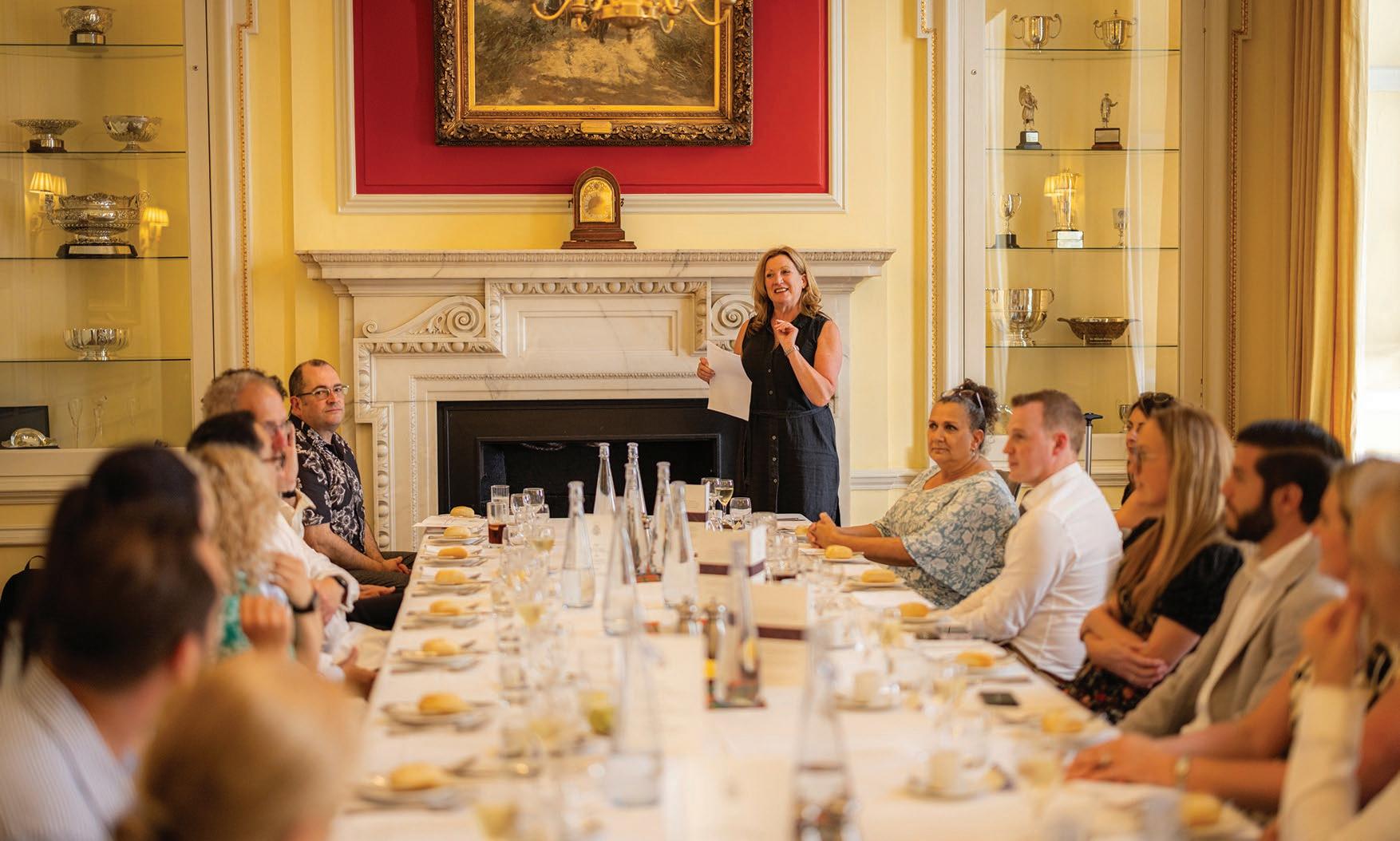
the frontier of a managed programme. But the shift over the past 12 months is clear: suppliers are working more closely together, making it easier for travel managers to build out complete programmes, and more buyers are leaning into fully managed ground transport. It’s a segment that’s been too messy to tackle, but with newer platforms offering consolidation, real-time data and reporting, travel managers finally have the tools they need to bring ground into the programme with confidence.
George Brenan, Director, Smartzi

It was a privilege to hear from pre-eminent leaders in corporate travel and get their perspective on the diverse challenges of ground transportation. As a supplier, we live and breathe the day-to-day of delivering an exceptional experience for customers and end-users. So it was good to be reminded that ground transportation typically accounts for less than 10% of corporate travel budgets
– albeit a figure which probably understates its share of management time and intellectual effort. As an operator with direct driver relationships across the country I hope Smartzi was able to present the view from the coal-face. Many of the issues raised come down to positive motivation and effective management of the professional drivers ultimately responsible for the safety and comfort of our travellers. Technology has brought huge benefits, particularly in the richness and flexibility of integration which it has enabled. But this is, at the point of delivery (for now), still very much a people business.
Raghav Dawar, Team Lead, Sales - EMEA & APAC, Blacklane

The Lunch Forum reinforced just how diverse the needs are in ground transportation across industries, from entertainment to consulting and beyond. Despite being a relatively small size of travel spend, ground transport is



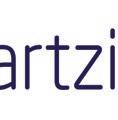


often the most pivotal and emotionally charged stage of the journey – a first impression that can truly make or break a trip. There’s a clear consensus: ground transport deserves equal focus alongside air and hotel, as corporations demand tailored, high-quality travel experiences.
Dr. Vojkan Tasic, Founder and CEO, Limos4

Ground transport may account for barely five per cent of corporate travel spend, yet the Business Travel Lunch Forum proved it punches far above its weight in risk, carbon and service perception. Both buyers and suppliers agreed there is no universal model: each programme must curate its own balance of on-demand, pre-booked electric and premium options, rooted in company culture, duty of care and sustainability targets. Continued collaboration among innovators will turn this complex final mile into a strategic advantage for corporates.
Stuart Donnelly, President Mobility, The Miles Consultancy

This year’s forum brought a refreshing mix of buyers, revealing varied levels of maturity in ground transportation programmes. While most had ride-hailing and chauffeur agreements, few had a truly integrated approach. To build a fully managed programme, we must think beyond cars, incorporating rail, rental and ride into one digital environment. That means aggregating content, enabling central payment to drive adoption, and steering smarter decisions at point of sale. With the right digital infrastructure, businesses can reduce costs, improve traveller experience and increase compliance, avoiding the inefficiencies of manual bookings and pay-and-reclaim.


Ground transport is evolving and it’s time we manage it like we manage air.
Danny O’Gorman, General Manager UK & Ireland, FREENOW

The recent event was a testament to fantastic organisation. The carefullycurated attendee list, comprising travel managers from a wide range of industries, proved spot on, fostering rich discussions. It was truly telling how far ground transport lags behind air travel, highlighting immense scope for modernisation in this sector. The other main challenge is how ground transport providers like FREENOW can support businesses to provide national and international coverage. This sparked meaningful conversations at Business Travel Show (great timing!) and continued beyond, promising a bright future for modernising corporate travel.

Ground transport may account for barely five per cent of corporate travel spend, yet the Business Travel Lunch Forum proved it punches far above its weight in risk, carbon and service perception”


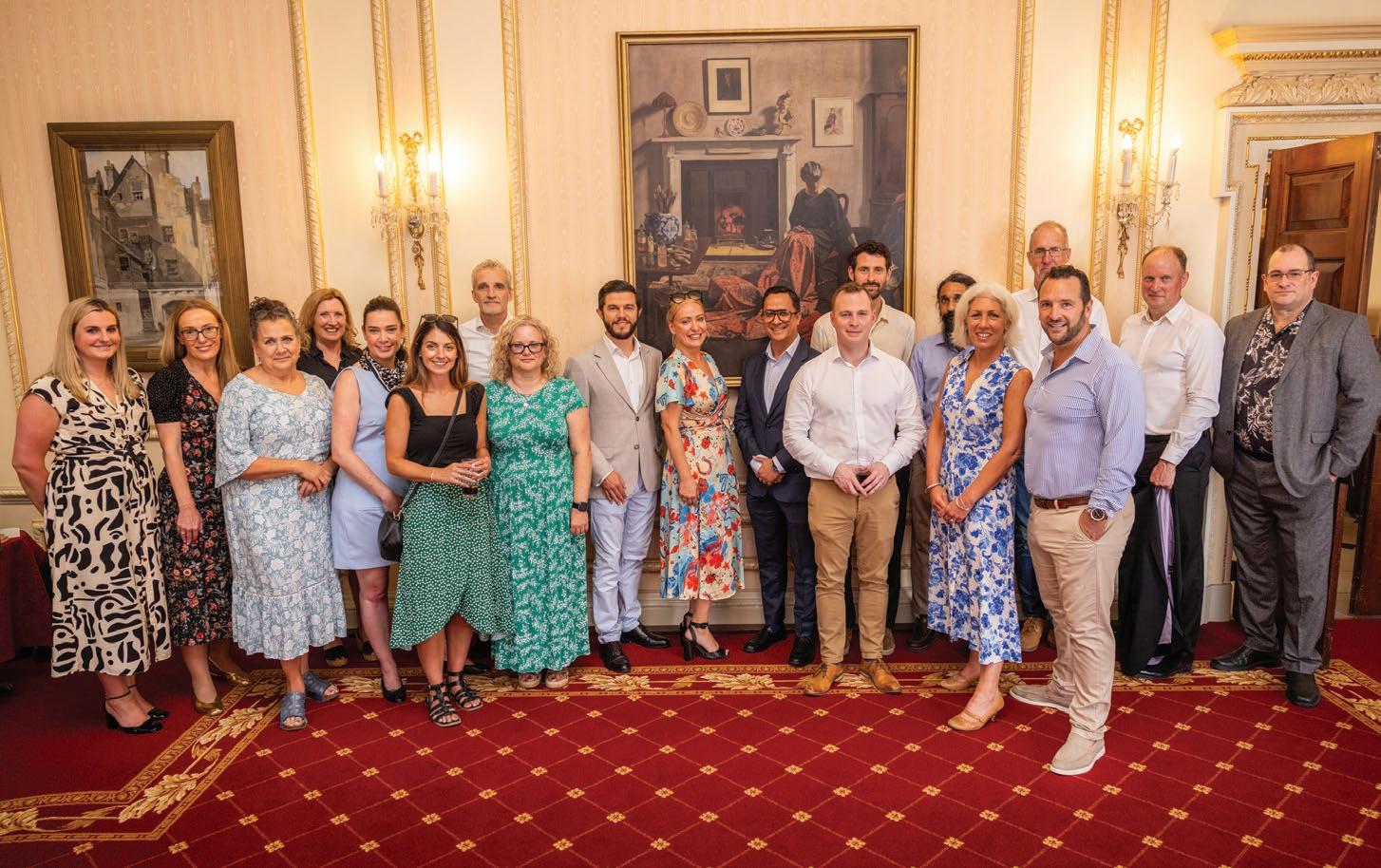

Western Australia’s capital has positioned itself at the heart of the future’s brightest industries, particularly renewables. Lithium and gold mining lead the way, while medicine and life sciences, education, space research and defence are all major employers, says Neal
Qantas transformed services on the so-called ‘Kangaroo Route’ to Australia back in 2018 with the launch of its direct flight to Perth. Today, that service operates daily from Heathrow using a B787 Dreamliner, with a 16.5hr flight time ideal for business travellers who can get straight to work on landing. Emirates, Qatar Airways, Etihad, Singapore Airlines, Malaysia Airlines and Thai Airways offer indirect flights with stopovers in their respective hubs.
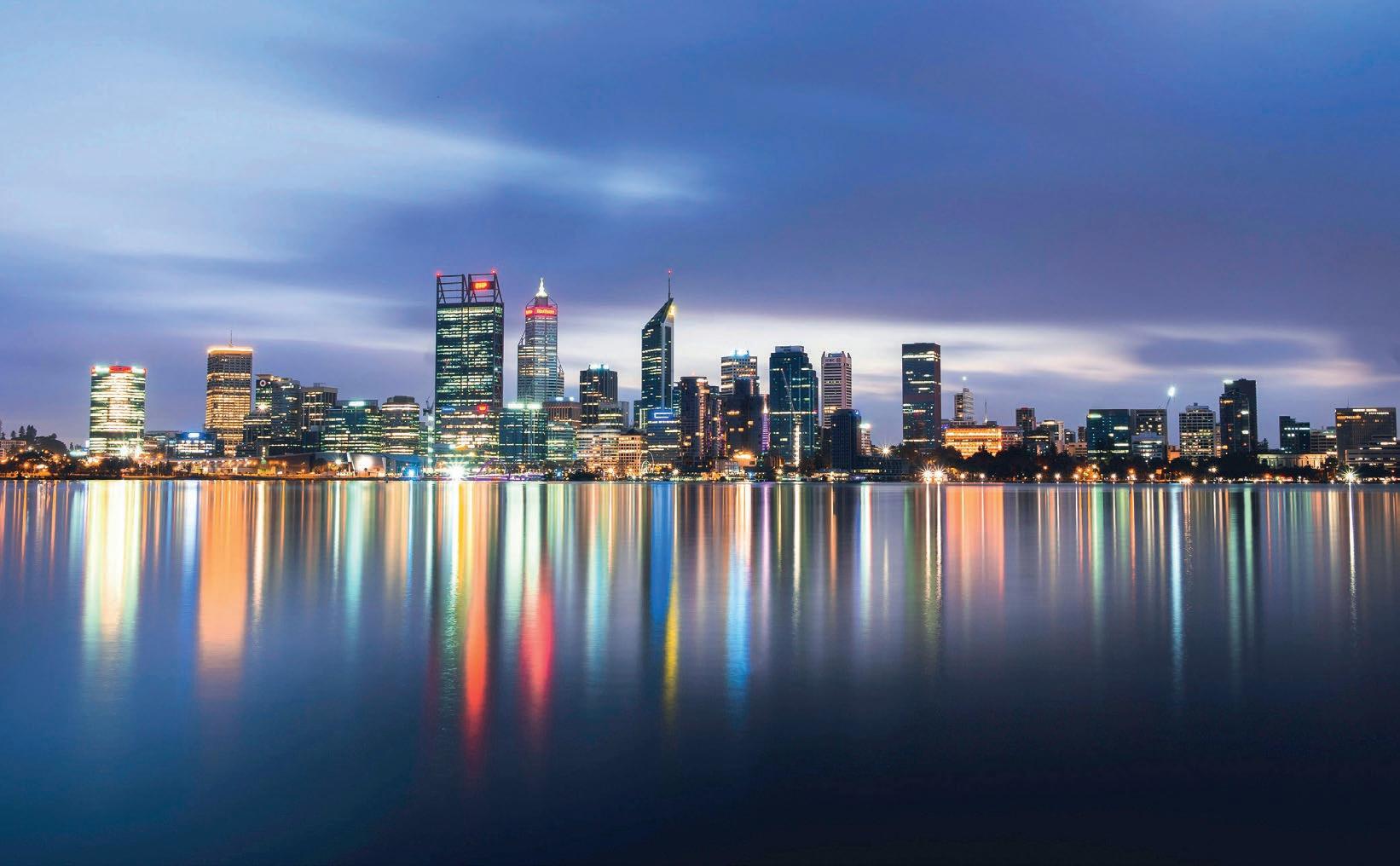
A flurry of openings by the big brands over the last decade means Perth is well-stocked with accommodation at all price points.
PERTH HAS AN EXTENSIVE PUBLIC TRANSPORT SYSTEM OF BUSES, TRAINS AND FERRIES

Notable additions include the Doubletree by Hilton Perth waterfront, heritagelisted Melbourne Hotel –which dates back to 1897 and has been extensively remodelled –and the Ritz-Carlton Perth. For longer stays, Aussie aparthotel brand Quest boasts 14 properties in and around the city.
Ask a local for a fine dining recommendation and you’ll invariably be told to head for Wildflower, a swish rooftop eaterie that’s part of the luxurious 48-room COMO The Treasury hotel in the CBD. For value, though, the Northbridge district is a flavourpacked winner. No Mafia (Italian), Bivouac Canteen (Middle Eastern),
(British pub food) are among the best.
The mixed-use Elizabeth Quay waterfront area on the Swan River is a relaxing place to kick back after a busy day of deal-making. From October-April, Perth CBD is the venue for a Twilight Hawkers Market, bringing out scores of streetfood vendors. For something more quirky, try the Galaxy Drive-In Theatre in Kingsley every weekend, or the crazy pinball collection at the Planet Royale entertainment complex.
Perth has an extensive public transport system of buses, trains and ferries, accessible with a Transperth SmartRider card which you load with cash before use. A Free Transit Zone operates in the CBD area on buses and trains (just tap on and off with the card). Trains and buses run regularly from Perth International Airport. Taxis
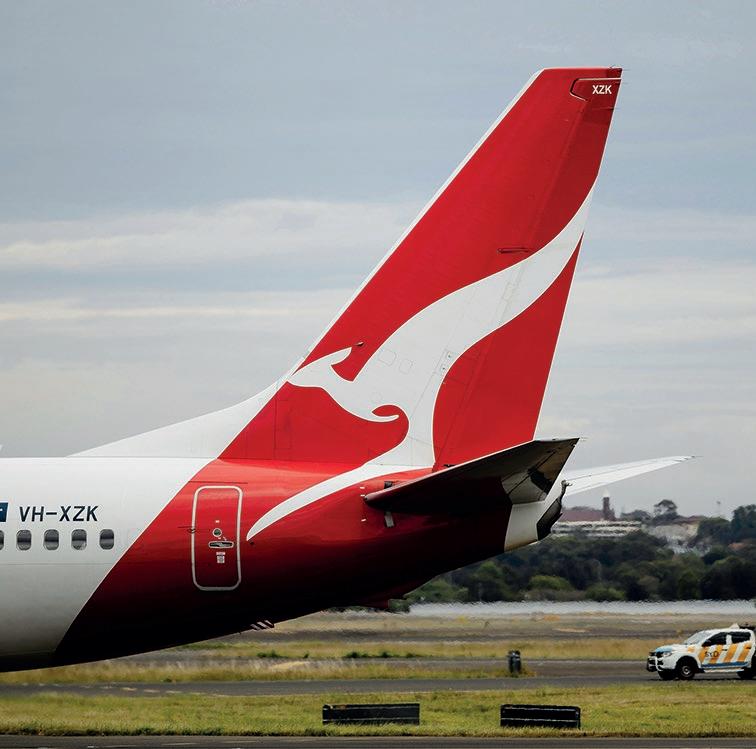
are plentiful, but cost around $80 for the 20-minute trip.
Downtime in Perth means heading into the great outdoors. Just 25 minutes’ drive from the city is the Swan Valley wine region, home to more than 40 of the country’s best producers, many of them family owned. Alternatively, Rottnest Island, also known as Wadjemup, is famed for its beaches, Aboriginal and colonial history and nature –particularly the unique marsupials called quokkas which live here.







The only airline with a daily direct service between London Heathrow and Perth.

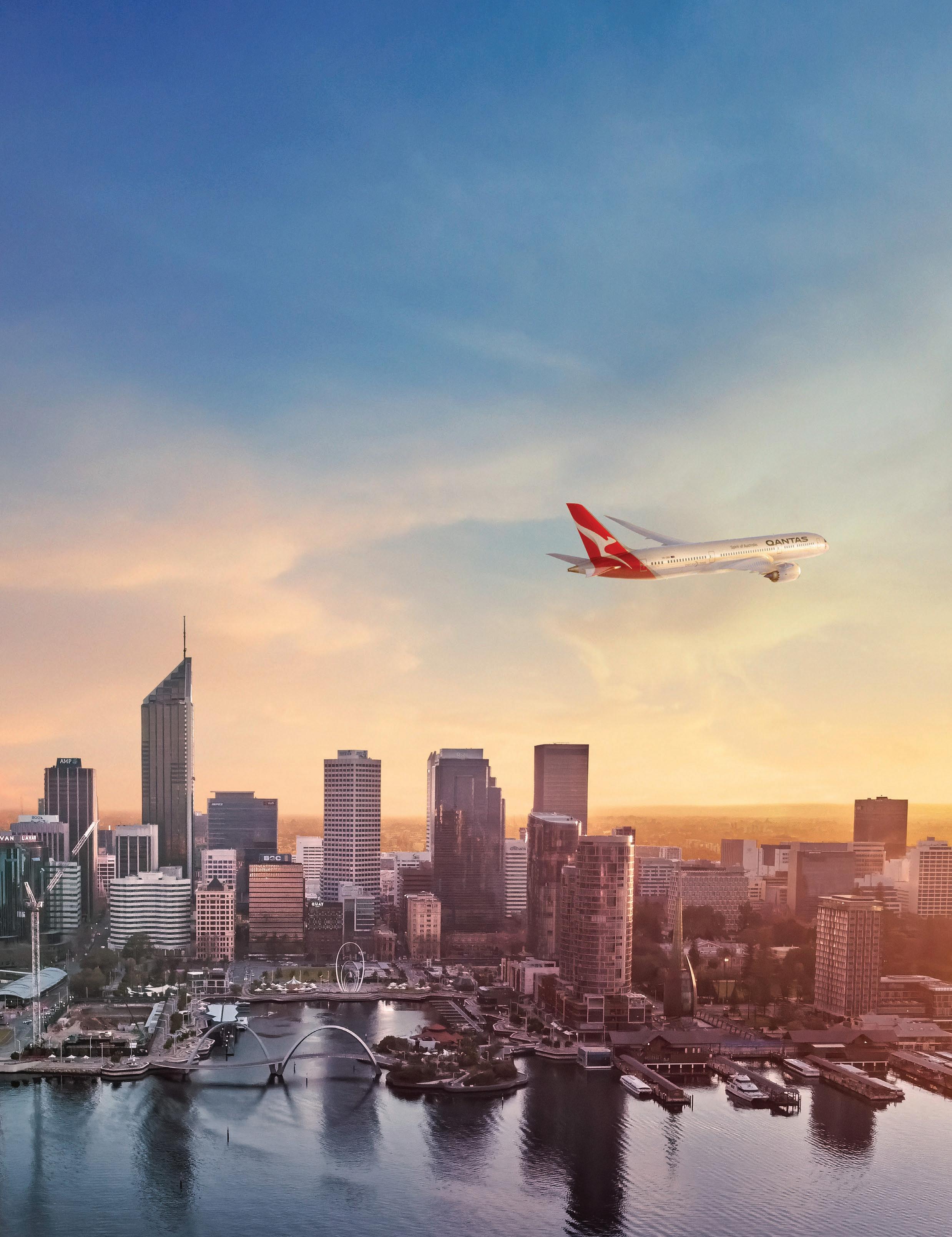

THE HOTEL The four-star NH Hamburg Mitte is in the city's Eimsbüttel district, an easy 15-minute walk to the Hamburg Exhibition Hall and Congress with the option of cutting through a leafy park. Formerly known as NH Hamburg Norge, the hotel was completely renovated in winter 2017 and has 134 rooms and suites. It's one of four NH hotels in the German city.
THE CHECK-IN The contemporary and cheery lobby was fairly quiet when I arrived on a Sunday evening. With no queue at the reception desk, I was quickly checked in and in the elevator to my family room on the sixth floor. A welcome note and lovely plate of sweet bites and a fruit salad greeted me.
THE ROOM My room was decorated in soft neutral tones with splashes of turquoise, a wooden floor and rugs. Windows on two sides let in plenty of light. A large desk and a swivel chair on wheels was great for working and the well-designed storage had hanging space, plenty of deep cupboards and a
safe. As a non-coffee drinker I appreciated the kettle and choice of tea but there's also an in-room Nespresso machine. The lights and the 46" flatscreen TV were easy to operate.
THE FACILITIES A buffet breakfast –cereals, fruits, yoghurts, pastries, sausages and cheeses – is served in a bright room with white chairs and tables and floor-to-ceiling windows looking out over the street. On the other side of the reception is a small bar where guests can get drinks and snacks 24/7. Soft, low sofas here were a nice place to relax after a busy day at a trade show and Celia looked after us, keeping us topped up with salty snacks with our reasonably priced wines and ice cold beers. A little 'honesty' kiosk was stocked with Pringles, Lays crisps, M&Ms cashews and other snacks, plus items guests might have forgotten, such as toothpaste and razors.
THE VERDICT It's the personal touches that make a stay special and in this case it was when I was surprised
THE HOTEL The Montenotte is the sister property of the boutique Wilder Townhouse hotel in Dublin’s city centre. It sits high on a hill overlooking Cork and the River Lee and is about a 20-minute (uphill) walk or five-minute taxi ride from Cork’s main train station. In August 2024 it introduced the Woodland Suite Experience, nine standalone luxury lodges that sit at the bottom of the property in an area that was once overgrown forest and wasteland. Woodland Suites is an initiative built around sustainability principles: for every stay Montenotte plants a tree, part of a Nights for Nature initiative with Irish charity, Hometree, THE CHECK-IN
My stay was on a Sunday and the hotel was busy with lunchtime guests. Woodland Suite guests (adults only) have their own check-in area – The Clubhouse – and are taken down to their suite by a golf buggy. We stopped to look at the 'Sunken Victorian Garden', with its plants and sculptures by Irish and international artists.
THE ROOM There’s two different design styles: ‘Woodland’ (slightly more private) and ‘River’ (slightly more spacious). My circular Woodland suite was innovative and modern, with integrated lounge and bedroom areas: a rice paper screen acts as a sliding partition. An eye-catching centrepiece in every suite is a two-metre Red Japanese Maple curated from recycled natural wood trunks and branches. The oak king-size bed occupies the middle of the room, with a self-contained kitchenette area. Other features include underfloor heating and a private patio, with two chairs and a table, that provides views down to the river and city.
THE FACILITIES Woodland Suite guests can take breakfast in The Clubhouse, which also offers a complimentary daily Sundowner hour (17.30-18.30). The Panorama restaurant features an outdoor patio area while Glasshouse is a rooftop cocktail bar. There's an on-site cinema, which can be used as a meeting room, a Spa and a
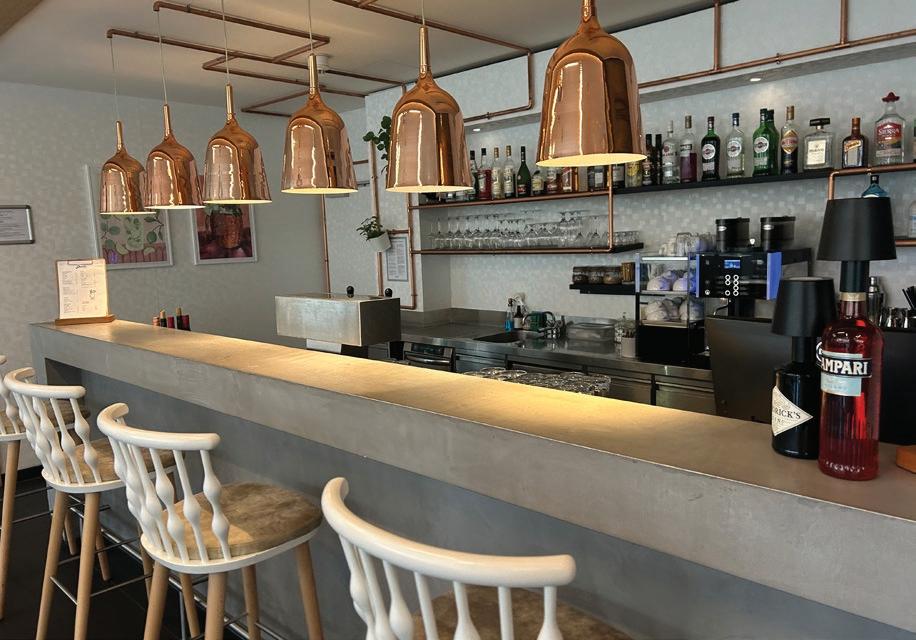

SOFT, LOW SOFAS IN THE BAR WERE A NICE PLACE TO RELAX AFTER A BUSY DAY AT A TRADE SHOW
during breakfast with a slice of delicious almond cake for my birthday, complete with a candle. I assumed colleagues had arranged it but apparently the hotel had spotted the date on my passport and always surprised guests with birthdays. They even sang. It made my day.
THE DETAILS Rates start at around €100 room only or €140 with breakfast. nh-hotels.com
Bev Fearis
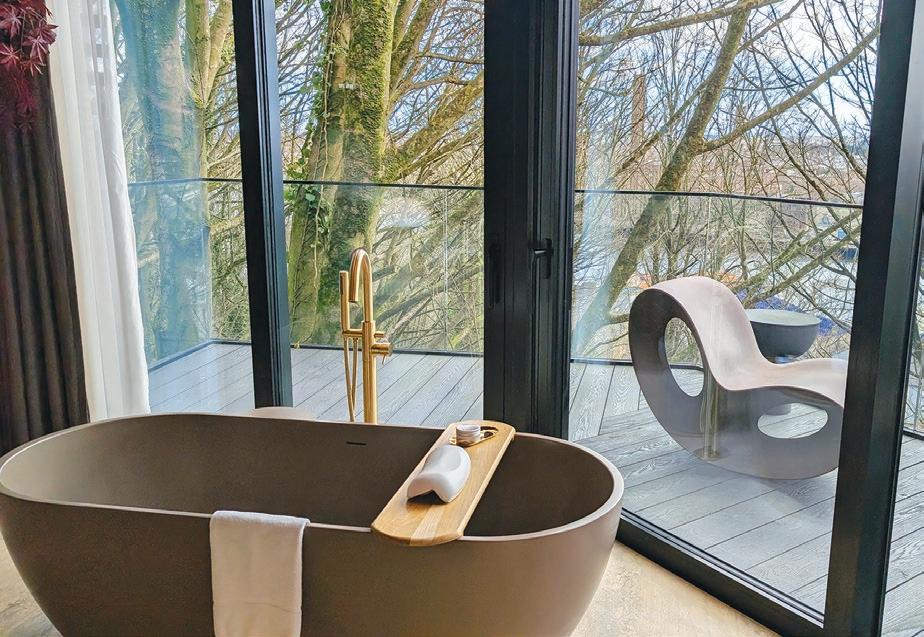

health club with a Jacuzzi, sauna, steam room and a 20-metre swimming pool.
A COMPLIMENTARY ‘WELCOME TRAY' INCLUDES A SELECTION OF IRISH CHEESES
THE VERDICT Blending modern luxury with the natural beauty of Cork's landscape, the Woodland Suites
Experience offers a sophisticated premium ‘getaway'.
THE DETAILS Woodland Suite
Experience rates from €610 per night. themontenottehotel.com
Steve Hartridge
THE FLIGHT I flew with United Airlines in Premium Plus from London Heathrow to Denver on flight UA26. The Boeing 787-9 was scheduled to leave at 11.25am but due to baggage belt problems at Heathrow our departure was held back until 12.10pm to allow for more time for our delayed checkedin bags to join us.
THE CHECK-IN Very heavy traffic around Heathrow meant I was late arriving at Terminal Two, where United has dedicated Premium and Polaris class desks in Zone D. I’d opted to check in via the app before I left home so it was just a case of getting my hold bag tag attached and scanned. Despite the busy check-in area, I was greeted warmly by United Airlines staff, who were prioritising customers based on flight times and were working tirelessly to manually process bags and stack them up in sections. Security could not have been quicker and I was through in five minutes with no need to remove anything from my hand baggage, which helped bring my stress levels down a
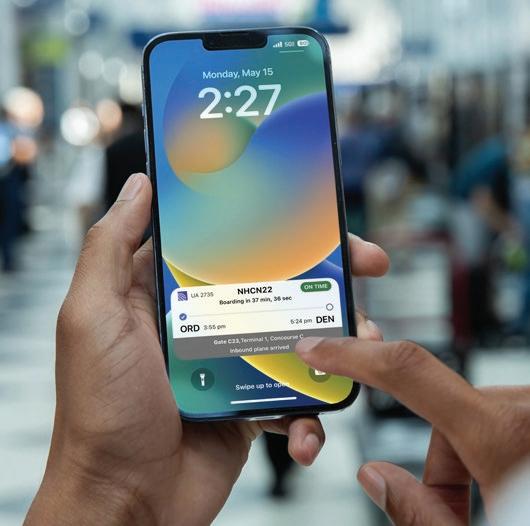
notch! I was just asked to remove my belt and have it scanned.
THE BOARDING Although I had lounge access (open to one-time passholders, United Club members and eligible Star Gold Members) my late arrival meant I only had time to grab a quick coffee and a snack at Café Nero before boarding my flight. It was full but boarding was quick and efficient. Although I’d missed the call for my early boarding group I still boarded quickly. Having been worried I might miss the flight, I was just so relieved to get on board and settle in.
THE SEAT The Premium Plus cabin is configured 2-3-2 and I had
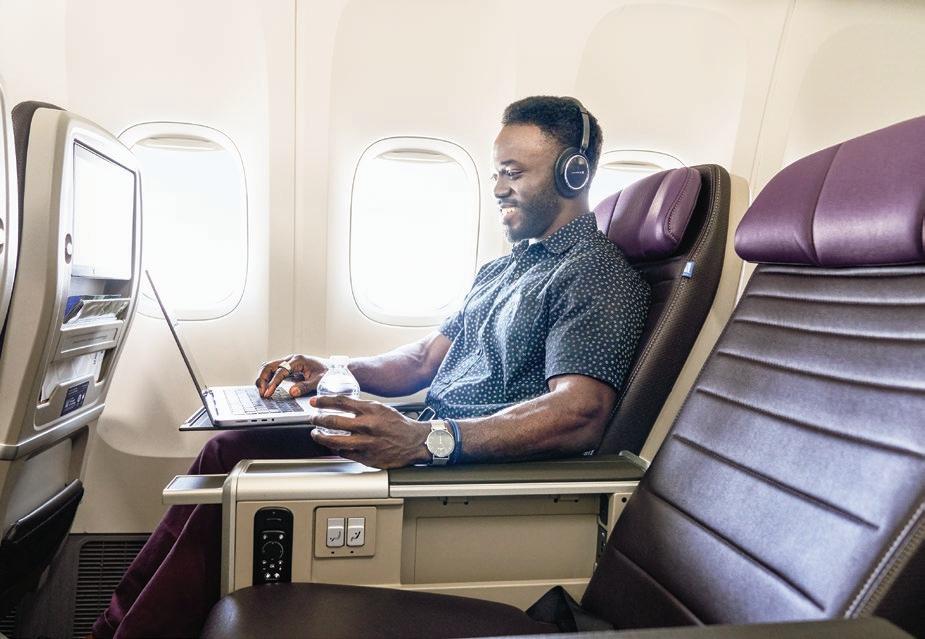

opted for window seat 21A. There was a plush pillow and a Saks Fifth Avenue Nicholas Daley Limited Edition blanket made from 100% recycled bottles. An amenity kit featured ear plugs, socks, eye mask, dental kit, tissues and a Therabody towelette. The generously-sized reclinable seat had ample leg room at 38’’ and a foot rest. I was able to avail myself of free Wi-Fi for messaging and if I had wanted premium internet connection I could have upgraded to the paid service – an hour for $7.99 or $14.99 for the full duration of the flight.
THE SERVICE Before take-off the cabin manager came by to greet me and gave me a signed card from the crew. It was a nice touch and made me feel special. Once we had reached cruising level they moved straight into lunch service where I picked Orecchiette pasta with white fava bean puree, sundried tomato, sauteed mixed vegetables and parmesan. This was accompanied by a really fresh tasting baby green salad with artichoke hearts, shaved parmesan and a balsamic vinegar dressing. There was a wide choice of wine, spirits and soft drinks and the usual plated dessert (which I never usually eat) was replaced by a bag of delicious wrapped plain Cacao truffles in cocoa power and sugar, which I saved for later in the flight. Midway through the flight we were offered a variety of sweet and savoury snacks, including sea salt crisps, salted caramel popcorn, roasted almonds and an indulgent Lily O’Brien dark chocolate bar. Prior to landing the crew served
another hot meal. This time I opted for the Paneer makhani with cumin rice, dal tadka, green chilli slices and chopped coriander. The on-demand inflight entertainment system comes with noise reducing headphones, a large 13’’ high quality screen and an enormous selection of movies, TV, games and Spotify, giving plenty of options for all age groups.
A SIGNED CARD FROM THE CREW WAS A NICE TOUCH AND MADE ME FEEL SPECIAL
THE VERDICT The attentive and friendly service, good inflight catering and minimal announcements all led to a relaxing flight. As a business traveller, the investment in a Premium Plus seat made all the difference on this 9hr+ long-haul journey, allowing me to stretch my legs out and try to get my inbox back under control! Sadly, my experience was tainted when I arrived at Denver to discover (via my Blacklane tracker tag) that my bag was still at Heathrow, one of several thousand bags delayed that day. So, before I checked in to my hotel I had to make a quick dash to Ross Dress for Less in downtown Denver to buy some new clothes and essentials for the GBTA Convention the following day. Thank you to United Airlines who handled the situation professionally, both in the US and UK, delivering my bag to me at my hotel the following evening, refunding my clothes/essentials claim within a week (note they will not cover travel costs to the shops) and for keeping me posted, both personally and through the app.
THE DETAILS United Airlines Premium Plus, London Heathrow to Denver, starts from £1,141 return. united.com
Kirsty Hicks
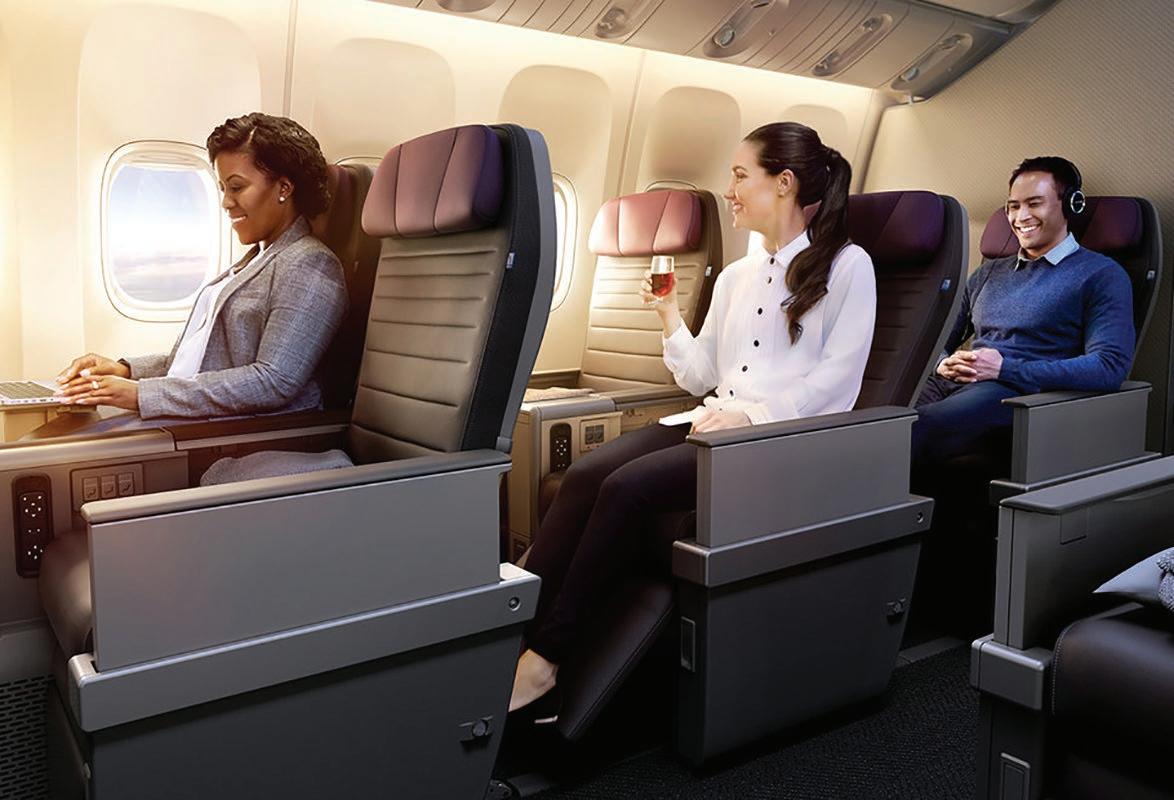

THE HOTEL Dating from 1913, The Washington Mayfair has an Art Deco heritage that lives on today in the decor. It's in Curzon Street, close to Park Lane, Piccadilly and Hyde Park. Green Park tube is a three-minute walk away. This four-star hotel has 178 rooms, including 18 suites and a twobedroom Penthouse Suite.
THE CHECK-IN Manager Dipesh and his team gave me a VIP welcome at the reception desk in the corner of a large lobby. The lobby has numerous bright red leather sofas, plants and a separate concierge desk with an array of guides and lifestyle magazines for guests to take. I grabbed a Tatler and a London theatre guide but then found more magazines in my suite.
THE ROOM I was lucky enough to be upgraded to the signature George Washington Suite, which comes with its own adjoining glass-walled meeting/ dining room, comfortably seating eight people. It also has a lounge, separate bedroom and a marble bathroom. It felt
more like an apartment than a hotel suite. Other highlights included the powerful shower, mist-free mirror and plentiful power sockets at desk height. Printed cards explained how to turn on the Sky TV, which was a bit complicated. A welcome tray had fresh fruit, chocolates and a large glass bottle of still water.
THE FACILITIES Madisons
Restaurant has a wall of double height windows, which let in plenty of light for breakfast and lunch and for its popular afternoon tea (£45 per person). It's a big space but candles and clever lighting make it more intimate in the evenings. I was going to an awards ceremony close by but before I left I had time for a well-made mojito in Madisons Bar, which was buzzing with guests, some clearly on business. All cocktails are £15. As well as the meeting room attached to my suite, there are three other meeting rooms in the hotel – the Fairfax, Winchester and Richmond Suites, accommodating up to 300 guests in reception style. A small gym is


open from 7am to 10pm daily but there are no windows. A key is required and can be requested at reception.
THE SUITE COMES WITH ITS OWN GLASSWALLED MEETING/ DINING ROOM
THE VERDICT An enviable location but less expensive (and less formal) than some of its neighbours in Park Lane.
THE DETAILS Rooms start at £235 per night while the George Washington Suite starts at £494, which is worth the extra for the use of the meeting room.
THE HOTEL Little sister to the Celtic Manor Resort, the 146-bedroom Tŷ Hotel Newport opened in June 2024 as the largest all-electric hotel in Wales, sourcing its electricity from 100% REGObacked renewable sources. It's just off Junction 24 of the M4, a short (free) shuttle bus ride from the Celtic Manor. You can also walk (15-20 mins) but across a busy M4 roundabout.
THE CHECK-IN The large lobby opens out on to the bar, lounge and restaurant and was busy with guests coming and going. A lift or a staircase leads up to the upper floors. I was staying on the adults-only floor with access to the Tŷ+ Lounge, a quiet space on the first floor with free tea and coffee, morning pastries and early evening snacks and drinks. Guests on this floor are also guaranteed early check-in from 3pm (usually it's 4pm).
THE ROOM My superior king room felt more spacious thanks to the fulllength windows with tree top views. The bathroom had plenty of space for my
toiletries and a decent-sized walk-in shower, fluffy towels and Elemis toiletries. I was attending a conference so the iron and ironing board came in handy and I was able to work on the small desk. The free Wi-Fi worked well.
THE FACILITIES CASA Kitchen & Bar is open for breakfast 6.30am-10.00am and dinner 6.00pm-9.30pm, when it has a Mediterreanean inspired menu – paella, croquettas, souvlaki, bruschetta – along with all the staples like burgers (£18) and sirloin steaks (8oz £30), plus plantbased options. My colleague and I shared a tiramisu for dessert (on the waiter's recommendation) and it was a theatrically constructed in front of us, complete with a chocolate dusting. The Tŷ Hotel Lounge is open for light dining 8am-9.30pm. All hot drinks are served with a Welsh cake. Thanks to its M4 location, the hotel is a popular meeting and dining spot for non-guests too with free parking for up to 3 hours. I made use of the Tŷ+ Lounge but was slightly disappointed with the choice of cold
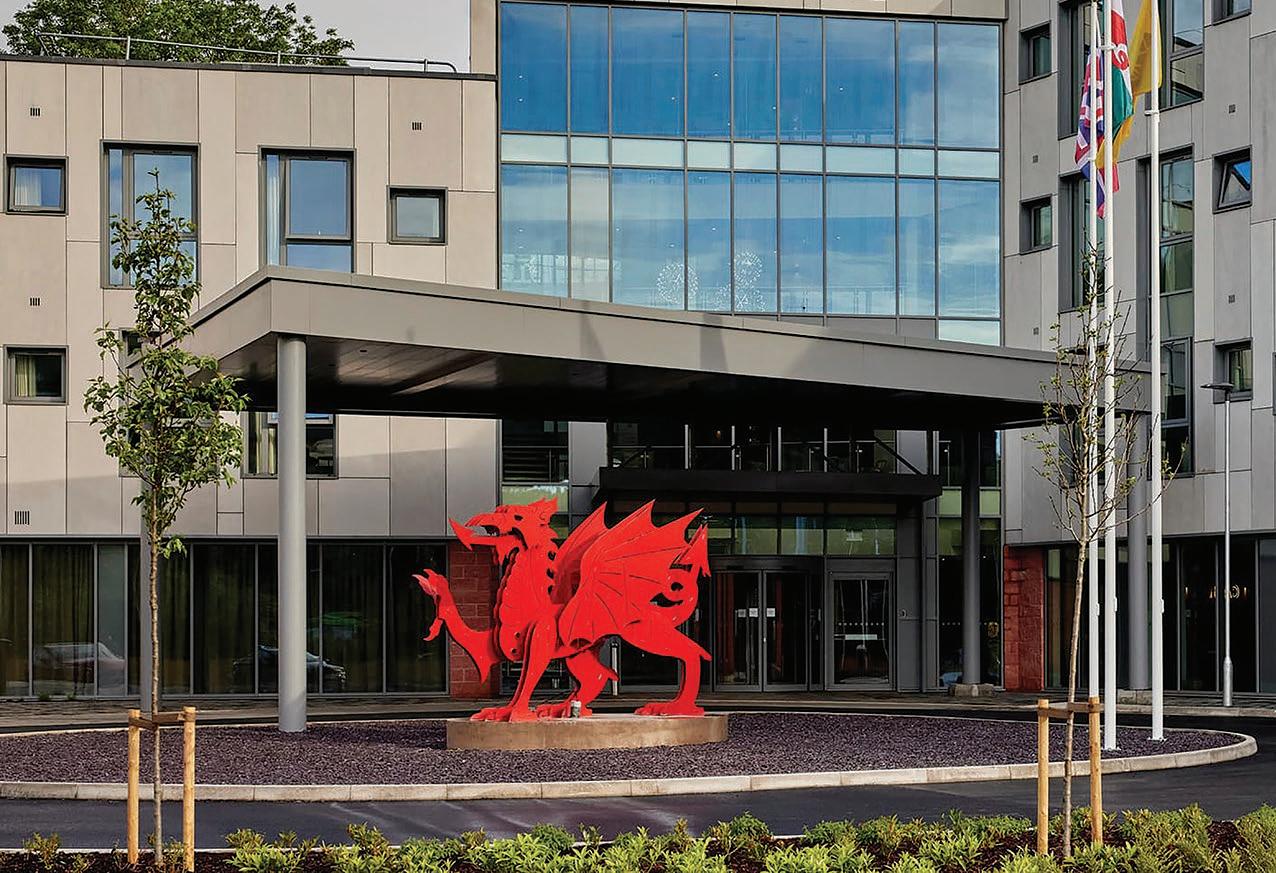

THANKS TO ITS M4 LOCATION, THE RESTAURANT IS A POPULAR DINING SPOT FOR NON-GUESTS
'happy hour' drinks (just beers and sodas) but on check-out the receptionist told me there's usually wine on offer too.
THE VERDICT If you want to play golf at the Celtic Manor but not pay the fivestar room rate, this is a safe bet. Great sustainability credentials too.
THE DETAILS Rooms start from £63 per night, including breakfast.
Bev Fearis




















Joins us for the Business Travel People Awards ceremony on the evening of Tuesday September 30 at the De Vere Grand Connaught Rooms, London


Single ticket £295, table of nine £2,595 With thanks to our sponsors








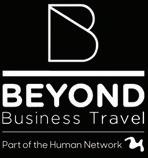



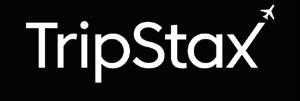
Putting aside our fears that the human race will eventually toil at the cold metal hands of evil robot overlords, it is always fun to imagine what life in the future is going to look like.
Our friends at LNER have jumped on that particular wagon, partnering with futurologist Tom Cheeseman to imagine train travel in the year 2075.
Done as part of a project to celebrate 200 years of UK rail, LNER’s predictions include facial recognition to do away with ticket barriers, cinema-style entertainment carriages, on-board nap pods and personalised smart seats.
There might even be treadmill areas, so passengers can get their exercise, though Final Word wonders if this isn’t just another ruse to keep us all standing?
Taking the ideas fully into the realms of science fiction, however,
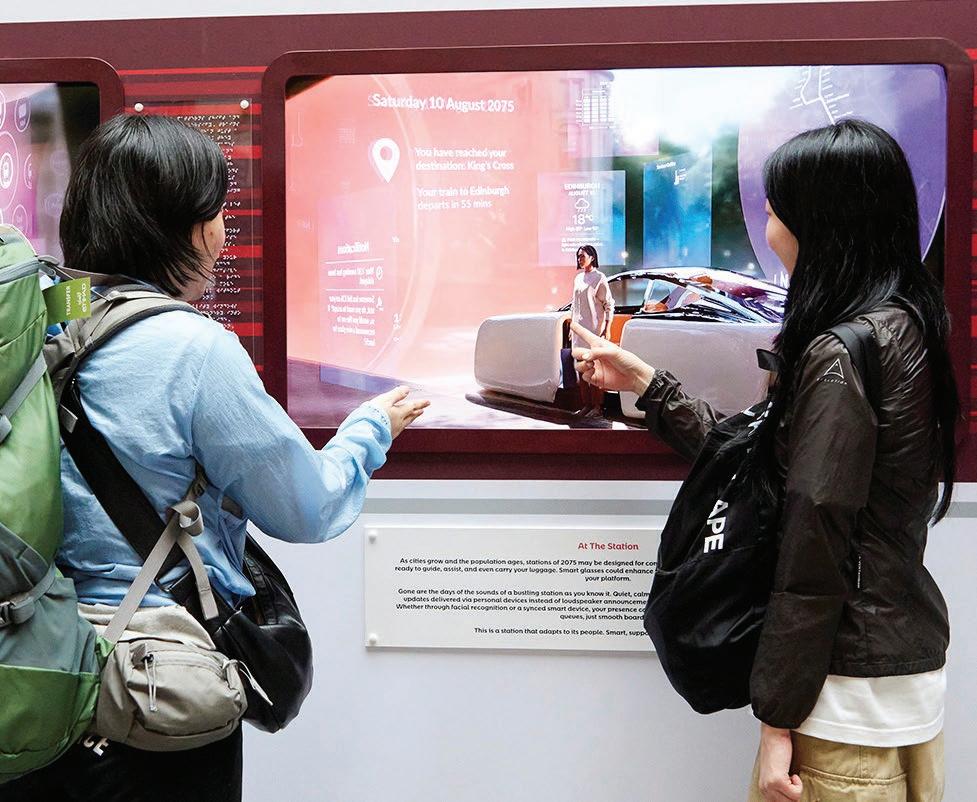
is the thought that trains in the future might be built with as-yet uninvented materials so that they can go really, really fast (yeah, right guys, nobody's gonna believe that one!). Sadly, there is no real

Budget hotel chain Travelodge is feeling pretty pleased with its new AI assistant Ara.
Now rolled out across the group's UK properties, the chatbot is designed to answer simple customer queries.
Got a question about parking, check-out times, breakfast options or attractions near your chosen hotel? The answer is just a text message away. And if you currently work front of house at Travelodge, don’t despair – Ara can probably tell you where the nearest job centre is.
prediction about how the UK's future rail network will be able to cope with leaves on the line, or half an inch of snow.
Let's hope they can find as-yet uninvented leaf and snow-proof materials for the train tracks too.
best places for quick layovers, scoring each one for attractions density, quick bites, safety, traffic and airport proximity. Here's the top 10:

Most people go to a conference and come back with a branded pen, a plug adapter or maybe a water bottle, but for one brave delegate at this year's GBTA Convention it was something a bit more life changing. The travel manager made the mistake of popping over to the Lifeline Puppy Rescue booth, a new wellbeing initiative at the event, and couldn't help but fall in love with a Lab/ Pointer mix known as #693. The lucky pup from New Mexico has now found a new home in Connecticut.

What a heartwarming tail (yes, deliberately misspelled!).

WHEN? October 20, 6pm – 9.30pm WHERE? Tower Suites by Blue Orchid Hotels, 100 Minories, London (closest tube Tower Hill)
COST? £495 for a team of up to eight, including buffet

Join us for a fun evening of networking and the chance to be crowned our first Biz Trav Quiz champions For more information on teams or sponsorship email kirsty.hicks@bmipublishing.co.uk

in partnership with
























































